Have you ever wondered if the hype around CBD oil benefits is justified? I certainly did. As someone who has struggled with anxiety and nagging back pain, I decided to give CBD oil a try - and eventually even experimented with products containing CBG (cannabigerol). In this blog, I'll blend my personal experience with evidence-based research to paint a realistic picture of what CBD and CBG oils can (and cannot) do.
We'll cover what these oils actually are, how they're different from plain hemp oil, the potential benefits for issues like pain, anxiety, sleep, and more, as well as possible side effects. I'll also share dosing tips that helped me, advice on choosing quality products, and the current legal status of CBD/CBG. Whether you're a curious new user seeking relief from aches, stress, insomnia or just exploring general wellness, this guide will help set your expectations.
Let's dive into the world of CBD and CBG through the eyes of both a researcher and a personal tester.
What is CBD and CBG Oil?
CBD (cannabidiol) and CBG (cannabigerol) are both natural compounds (cannabinoids) derived from the Cannabis sativa plant. Unlike their famous cousin THC, they are non-psychoactive - meaning they won't get you "high." CBD is the more abundant and well-known cannabinoid, while CBG is present in much smaller quantities (hence called a "minor cannabinoid"). In fact, cannabis plants usually contain much higher levels of CBD than CBG. A fun fact: CBG is often dubbed the "mother of cannabinoids" because other cannabinoids are derived from CBGA (the acidic form of CBG) during the plant's growth cycle.
CBD oil is typically made by extracting cannabidiol from hemp (a variety of cannabis bred to have very low THC) and then diluting that extract in a carrier oil like coconut MCT oil or hemp seed oil. For example, a manufacturer might use CO₂ or ethanol to pull out CBD from hemp flowers, then mix it into an oil tincture for easy dosing. It's important to note the distinction between hemp seed oil and hemp-derived CBD oil: hemp seed oil (found in grocery stores) comes from pressed hemp seeds and contains minimal CBD, whereas CBD oil uses the leaves/flowers of hemp to yield a significant cannabidiol content.
CBG oil is made in a similar way - extracting cannabigerol from hemp - but it's rarer and often more expensive. Why? In mature hemp plants, most of the CBG has already converted into other cannabinoids (like CBD or THC). To get appreciable CBG, growers use special strains or early harvesting. Many products marketed as CBG oil are actually broad-spectrum hemp extracts rich in CBG but also containing CBD and other cannabinoids. In my case, I didn't start with a standalone CBG oil; instead, I tried a full-spectrum CBD oil that was boosted with a percentage of CBG. This gave me a taste of both cannabinoids together.
Despite being different compounds, CBD and CBG have a lot in common in terms of effects. Both interact with our bodies' endocannabinoid system - a network of receptors (CB1 and CB2 receptors, among others) that help regulate pain, mood, appetite, and immunity. CBD doesn't bind strongly to these receptors; instead, it influences them indirectly and also acts on other pathways like serotonin receptors and TRPV ion channels. CBG, on the other hand, can bind directly to CB1 and CB2 (though not as potently as THC). In simple terms, CBD acts more like a modulator, while CBG is more of a direct actor on cannabinoid receptors.
To summarize the basics, here's a quick comparison of the two:
| Aspect | CBD (Cannabidiol) | CBG (Cannabigerol) |
|---|---|---|
| Abundance in Hemp | Major cannabinoid (often 10-20%+ of plant) | Minor cannabinoid (usually <1% of plant) |
| Psychoactive? | No - non-intoxicating (no "high") | No - non-intoxicating (no "high") |
| Research Evidence | Well-studied (e.g. FDA-approved for epilepsy; many clinical trials for anxiety, pain, etc.) | Emerging research (preclinical studies; a few human trials just beginning) |
| Notable Benefits | Proven for certain epilepsy; evidence for anxiety, insomnia, inflammation, pain relief (mixed) | Potential for anxiety and neuroprotection (e.g. early findings in Huntington's, Parkinson's); reported anti-inflammatory and antibacterial effects |
| Availability | Widely available in oils, gummies, etc. (many brands and potencies) | Scarce as a pure oil (often found in broad-spectrum CBD products); generally more expensive due to low yield |
Both CBD and CBG oils are usually sold as dietary supplements (in countries where that's permitted) and taken sublingually (drops under the tongue) or added to foods. Now that we know what they are, let's explore why people use them and what benefits you might expect - with some personal anecdotes along the way.
Benefits of CBD and CBG (With Personal Notes)
People turn to CBD (and increasingly CBG) for a variety of health and wellness reasons. I remember scrolling through online forums and seeing posts from users claiming "CBD oil changed my life!" for everything from chronic pain to public speaking anxiety. It sounded almost too good to be true. The truth is somewhere in the middle - these oils are not magic cure-alls, but they can offer relief in several areas, especially when used properly. Below I break down some of the most common uses and what science and my experience have to say about them.
Pain Relief
One of the top reasons people try CBD is to manage pain - whether it's everyday aches, arthritis, or neuropathic pain. There's some historic precedent here: cannabis has been used for pain relief for centuries. CBD in particular is known to have anti-inflammatory properties, which suggests it could help with pain that involves inflammation (like arthritis). In animal studies, for example, CBD applied to arthritic rat joints reduced inflammation and pain signs. Another line of research indicates CBD may influence pain perception by inhibiting certain pain-signaling pathways in the brain and nerves.
However, clinical evidence in humans is mixed. A recent comprehensive review (led by the University of Bath) found no strong evidence that commercially available CBD products reduce chronic pain in humans. In that analysis, 15 out of 16 randomized controlled trials showed CBD was no better than a placebo for pain relief in chronic conditions. The researchers even warned that taking CBD for pain might be a waste of money for many people. I found this surprising given all the anecdotal success stories. It turns out many of those stories could be due to placebo effect or the fact that often CBD products used for severe pain also contain a bit of THC (which is a known analgesic).
My experience: I started using CBD oil to help with chronic lower back pain from sitting at a desk all day. In the first week, I honestly didn't notice much change in the pain itself - ibuprofen was still my go-to for flare-ups. But after a couple of weeks of daily CBD (about 30 mg per day), I realized I was reaching for the NSAIDs less often. The ache wasn't gone, but it was less distracting. It felt more like a dull background sensation rather than a sharp, intrusive pain. This might have been due to CBD's subtle anti-inflammatory effect. On days when I did heavier workouts, I also felt like I wasn't as sore the next day when I had taken CBD.
To see if CBG would make a difference, I later tried a CBD oil that also had CBG in it (the formula was something like 1000 mg CBD + 150 mg CBG per bottle). I can't quantify it, but subjectively, my recovery from exercise-induced muscle pain seemed a bit faster with the CBD+CBG combo than CBD alone. Interestingly, a survey of CBG users backs this up: the second most common reason people used CBG was for chronic pain, and about 74% of them reported that CBG-rich cannabis worked better for their pain than conventional pain medications. That's a huge number! It's just self-report, but it shows CBG's potential for pain is on people's radar.
Overall, for pain relief, I'd rate my personal results with CBD as moderate. It didn't miraculously cure a bad back, but it took the edge off persistent pain and inflammation enough to improve daily comfort. I'd advise anyone looking at CBD for pain to keep expectations realistic - it might help as part of a pain management plan, but it's not an instant painkiller. And if you have severe pain, a product that includes some THC (where legal) or at least a doctor's guidance might be necessary for real relief.
Anxiety and Depression
If there's one area where CBD shines in the court of public opinion, it's anxiety relief. "CBD for anxiety" is one of the most touted uses on social media and in wellness blogs. And there is some scientific basis for this. Small clinical studies have found that CBD can reduce anxiety in certain situations. For instance, in a well-known 2011 study, a 600 mg dose of CBD significantly reduced anxiety in people with social anxiety disorder during a simulated public speaking test, compared to placebo. Another trial in 2019 showed benefits in teenagers with social anxiety. These studies suggest CBD interacts with serotonin receptors (5-HT1A in particular) and other brain receptors involved in regulating fear and mood.
Beyond formal research, many users report feeling calmer and less jittery with regular CBD use. Even the World Health Organization noted that CBD may have a positive impact on anxiety and that it "exhibits no effects indicative of abuse or dependence" in humans - meaning people aren't getting addicted, which is a good thing for something taken for mental health. Ongoing clinical trials are exploring CBD as a therapeutic for generalized anxiety, PTSD, and other disorders, but as of now, it's not an FDA-approved treatment for those (doctors can't prescribe CBD for anxiety, though they might suggest trying it as a supplement).
Depression is trickier. There's some evidence from animal studies that CBD might act as an antidepressant (in mice it can boost serotonin temporarily). And some humans taking CBD do report improved mood. But depression is complex, and we don't have much clinical trial data showing CBD alone can alleviate moderate or severe depression. It might indirectly help by improving sleep or anxiety, which in turn lifts mood. CBG, interestingly, is being researched for anti-depressant properties too. In a survey of CBG users, 33% were using it to ease depression, and most of them said it worked better than their standard medications. Those are subjective outcomes, but it signals why researchers are interested in CBG for mood.
My experience: I originally started CBD mainly for anxiety. I have a generally anxious disposition - racing thoughts at night, and a bit of social anxiety in large groups. Taking CBD oil (I started low at 15 mg and worked up to about 40 mg per day in divided doses) had a noticeable effect on my anxiety level. It's a bit hard to describe - the anxious thoughts didn't vanish, but I felt less reactive to them. For example, I remember an early incident: I had a presentation at work (the kind of thing that would normally have my stomach in knots). That morning I took a full dropper (~33 mg) of CBD oil. An hour later, I felt unusually calm. I still had slight butterflies, but I didn't have the pounding heart and sweaty palms that usually come with my presentations. It was like my internal "alarm" was toned down. I got through the talk smoothly. Placebo effect? Possibly. But I've since repeated this routine for other high-stress situations (like flying, which I dislike) and it consistently takes the edge off my nervousness.
I also noticed CBD's anxiolytic (anxiety-reducing) effect in the evenings. Instead of my mind racing at bedtime overanalyzing the day, I felt more at ease and could unwind. It became part of my nightly wind-down routine to have a few drops of CBD oil an hour before bed (more on sleep next!). Friends of mine who've tried CBD for anxiety had mixed results - a few felt it did nothing, but others, like me, swear by it for social anxiety or general stress. It likely depends on the person and dose.
Regarding depression: I went through a period of mild depression last winter (mostly related to pandemic isolation). I can't say CBD was a cure for my low mood - it wasn't. However, on days I took CBD, I did feel less overwhelmed and more present, which indirectly helped me do positive things (like go for a walk or call a friend) that improved my outlook. I later tried a CBG-inclusive oil during a stressful month and did notice a subtle uptick in my alertness and motivation. Some people anecdotally describe CBG as having an "uplifting" or even mildly energizing effect (whereas CBD in higher doses can make one a bit sleepy). I found that to be true for me: the CBD+CBG oil in the morning made me feel calmly focused at work, almost like a very, very mild cup of coffee without jitters. This could be placebo or just the novelty, but I suspect CBG's interaction with both cannabinoid and adrenergic receptors might produce a bit of mental clarity.
In summary, for anxiety, CBD oil has become my go-to tool, and I prefer it over a glass of wine or other remedies because it calms me without clouding my mind. For depression, I regard it as a supportive aid - possibly helping me through the worst days - but not a stand-alone solution. Always remember that everyone's brain chemistry is different: what works for me in terms of feeling calmer may not work for you, so careful, guided experimentation is key.
Sleep Improvement
Another big reason people use CBD is to improve sleep. Many nights of insomnia have led folks to seek out anything that might help them fall asleep faster or stay asleep through the night - and CBD's calming nature makes it a candidate. Research into CBD for sleep is still in early stages, but there are some promising findings. For example, one large case series at a psychiatric clinic found that CBD improved sleep scores in about two-thirds of patients within the first month. There's also a 2019 study that gave 25-50 mg of CBD to 72 adults with anxiety and poor sleep: after a month, 66% reported better sleep and 79% reported less anxiety. Some controlled trials have been less optimistic, though - a recent clinical trial of 150 mg CBD at night for insomnia showed it was about as effective as a placebo for most sleep measures, but those on CBD reported greater overall well-being and less anxiety than the placebo group. This hints that CBD might not be a knock-out sedative in the way prescription sleeping pills are, but by easing anxiety and pain it can indirectly lead to better rest.
Interestingly, CBD's effects on sleep can depend on dose: low doses can be mildly alerting (CBD might even increase wakefulness at tiny doses), while higher doses tend to be sedating. In fact, in one study, a hefty 160 mg dose of CBD before bed helped people with insomnia sleep longer. CBD may also improve REM sleep behavior disorder and excessive daytime sleepiness, according to preliminary research.
CBG and sleep: There isn't much direct research on CBG for sleep. Anecdotally, some users say CBG in the evening helps them sleep, while others find CBG a bit too stimulating. In my experience, CBD was far more noticeable for sleep than CBG. If anything, I preferred taking CBG earlier in the day.
My experience: I didn't start taking CBD as a sleep aid, but I quickly realized better sleep was a happy side effect of my evening CBD dose for anxiety. Before CBD, I often had trouble not only falling asleep but staying asleep - I'd wake up at 3 AM with my mind racing. After incorporating 20-30 mg of CBD after dinner, I noticed I fell asleep faster. The transition from wakefulness to sleep was smoother; my mind was quieter. I also noted fewer middle-of-the-night awakenings. On the occasions I did wake up in the wee hours, I felt relatively calm and could drift back to sleep more easily instead of spiraling into anxious thoughts.
One particular night stands out: I had consumed some caffeine too late in the day (oops) and was feeling jittery at bedtime. I decided to take an extra CBD dose (~40 mg total that night). Within about 45 minutes, the physical jitters subsided and I actually got drowsy. I slept a solid 7 hours, which I did not expect after a late coffee. To me, this demonstrated CBD's potential to balance out adrenaline and stress responses that can sabotage sleep.
I should mention that CBD is not a knockout pill - it doesn't slam your brain into sleep mode like, say, Ambien or melatonin might. I can still choose to stay awake on CBD if I engage with screens or bright lights. But it gently encourages sleep by relaxing you. I wake up clear-headed, with none of the grogginess or "hangover" that some sleep meds cause. The only time I felt groggy was when I experimented with a very high dose (around 100 mg) which left me a bit heavy-headed the next morning. That taught me that more isn't always better; moderate dosing was ideal for me.
As for dreams - some people report vivid dreams on CBD (possibly because it may prolong REM sleep). I did notice an uptick in dream recall when using CBD regularly. It wasn't dramatic or disturbing - actually, some vivid dreams were rather interesting!
When I added CBG (in a CBD/CBG combined oil) to my regimen, I didn't see much change in sleep quality one way or the other. It neither improved nor worsened my sleep noticeably. So in my opinion, CBD is the star for sleep, and CBG is neutral at best in this area. If your main goal is better sleep, a CBD oil (possibly paired with a bit of CBN, another cannabinoid known for sedative effects) might be more beneficial than focusing on CBG.
Epilepsy and Neurological Conditions
One of the most profound success stories for CBD is in the treatment of certain forms of epilepsy. In fact, the strongest scientific evidence for CBD's medical benefits is in seizure disorders. In 2018, the U.S. FDA approved Epidiolex, a purified CBD oral solution, for treating two severe childhood epilepsy syndromes: Lennox-Gastaut syndrome and Dravet syndrome. These conditions often don't respond to traditional anti-seizure drugs, but CBD was able to dramatically reduce seizure frequency in many patients (sometimes by 40% or more), and a few even became seizure-free. Seeing videos of children who went from dozens of seizures a day to nearly none after CBD is truly heartwarming - it's where the "miracle" reputation of CBD began.
Scientists believe CBD's anti-epileptic effects come from its ability to calm excessive electrical activity in the brain, reduce inflammation, and modulate calcium levels in neurons. Importantly, the doses of CBD for epilepsy are very high (Epidiolex is given at around 10-20 mg per kilogram of body weight - which for a 70 kg adult would be 700-1400 mg daily, far above the doses used for, say, anxiety or pain). Those high doses carry some side effects (we'll get to that in the Side Effects section), but the risk is worth the benefit when treating life-threatening seizures.
Beyond epilepsy, researchers are exploring CBD and CBG in other neurological and neurodegenerative disorders:
- Multiple sclerosis (MS): CBD by itself is not an approved treatment, but a cannabis-derived medication called Sativex (which contains CBD + THC in a 1:1 ratio) is licensed in many countries to treat MS-related muscle spasticity. Patients often report reduced spasms and improved mobility on that medication. In my friend group, one person with mild MS symptoms uses OTC CBD oil daily and swears it helps her with muscle tightness and fatigue, though this is anecdotal. There is also early evidence that CBD may have anti-inflammatory and neuroprotective effects that could benefit MS, but more clinical trials are needed.
- Parkinson's disease: Preliminary studies with CBD have shown possible improvements in quality of life and sleep for Parkinson's patients, and some anti-tremor potential, but outcomes have been mixed. CBG is also being looked at here; interestingly, CBG might support dopamine neurons (which degenerate in Parkinson's) via its interactions with the endocannabinoid system. No definitive answers yet, but I've read accounts of Parkinson's patients experimenting with CBD oil to reduce tremors or anxiety, with varying results.
- Alzheimer's and dementia: Much of the evidence here is from animal models. CBD has been found to reduce neuroinflammation and might help clear or prevent the plaques associated with Alzheimer's in mice. There's a long way to go to prove any benefit in humans, but the research is ongoing. At the very least, using CBD to manage anxiety and agitation in dementia patients is being tried in some caregiving settings (since those can be big challenges in Alzheimer's care).
- Huntington's disease: This is an area where CBG in particular has shown promise. A study indicated that CBG could protect neurons in cell models of Huntington's disease, improving cell survival. It appears to shield nerve cells from toxic over-stimulation (excitotoxicity). Again, this is early-stage research, but it points to potential neuroprotective roles for CBG.
-
Autism spectrum disorders: There's growing interest (and some active research in Israel and the U.S.) on using CBD for autism symptoms like severe anxiety, aggression, and restlessness. Preliminary parental surveys have noted improvements in some behaviors, but we need controlled studies.
From a personal perspective, I (thankfully) do not have a serious neurological disorder like those above, so I haven't "tested" CBD/CBG in that context on myself. I do have a cousin who suffers from frequent migraines (a neurological condition of sorts), and she uses CBD oil daily as a preventative. She told me it reduced the frequency of her migraines from several per month to just one or two, although when she stopped CBD, the migraines crept back. Migraine evidence for CBD is mostly anecdotal right now, but it's another area being studied.
Even though I can't personally speak to conditions like epilepsy, it's encouraging to know that CBD has made such a difference for some families dealing with seizures. It lends credibility to the idea that these cannabinoids are doing something real in our bodies. If you or a loved one has a neurological condition and are considering CBD, it's crucial to involve a doctor because of possible drug interactions and the need for precise dosing. But stories like Epidiolex show that science-backed benefits are indeed there for certain conditions - this isn't just snake oil.
Cancer-Related Symptom Relief
Living with cancer or undergoing chemotherapy/radiation often comes with a host of debilitating symptoms: pain, nausea, loss of appetite, nerve damage, insomnia, anxiety, etc. Many cancer patients (and survivors) have turned to cannabis products, including CBD oil, to help manage these issues. I encountered this firsthand when a close family member underwent chemotherapy for lymphoma - they were nauseous and anxious much of the time. At their oncologist's approval, they added a CBD-dominant cannabis oil (with a tiny amount of THC) to their regimen. The result was noticeably improved appetite and less nausea after chemo sessions. It didn't completely erase the discomfort, but it made it tolerable enough for them to eat a meal and stay positive.
So what does research say? There's evidence that cannabinoids can help with certain cancer-related symptoms. For example, THC (from medical marijuana) is well-established as an anti-nausea and appetite stimulant; drugs like dronabinol (synthetic THC) are FDA-approved for chemo-induced nausea. CBD by itself is less potent for nausea, but some studies suggest a combination of CBD and THC is more effective than THC alone (they seem to enhance each other's effect). In terms of pain, a mouth spray containing THC/CBD (Sativex again) improved pain in advanced cancer patients who weren't getting relief from opioids, in a clinical trial. However, when it comes to CBD alone for cancer pain, results are mixed or modest. Some patients report it helps, others find little difference. It likely depends on the type of pain - is it inflammatory, neuropathic, visceral? CBD may help inflammatory pain and neuropathic pain to an extent, thanks to its anti-inflammatory and neuro-calming effects.
Another important area is anxiety and sleep in cancer patients - CBD can certainly assist there, as discussed earlier. Simply feeling calmer and sleeping better can improve a cancer patient's quality of life tremendously.
Now, beyond symptom management, there's the big question: Can CBD or CBG treat the cancer itself? There are some fascinating lab studies where high concentrations of cannabinoids slowed the growth of certain cancer cells or even caused cancer cell death in petri dishes. For instance, a 2021 scientific review noted that CBG appeared to inhibit the growth of breast cancer cells and reduce inflammation associated with the cancer. Both CBD and CBG have shown anti-tumor effects in animal models of cancer as well. CBD, for example, has been observed to promote apoptosis (programmed cell death) in glioblastoma (a type of brain cancer) cells in mice, and to enhance the effect of chemotherapy in breast cancer models. CBG has been studied in colon cancer cells with some positive findings.
However - and this is crucial - these effects have not yet been proven in human clinical trials. The doses required and the delivery mechanisms might be very different in a human body. So while the early research is intriguing (and I truly hope it leads to new adjunct therapies one day), right now CBD/CBG are used for support, not cure when it comes to cancer.
My experience (through others): My aforementioned family member took a CBD-rich oil during chemo. On the days they used it, their nausea was significantly less severe (so much so that anti-nausea prescription meds were needed only half as often), and their mood was better. They also believed it helped with the neuropathic pain (tingling and numbness) caused by some chemo drugs. The oncologist was cautiously supportive, mainly because the CBD oil was also providing a small amount of THC which is known to help these symptoms. It's worth noting their CBD oil was a legally regulated product from a medical dispensary, with known cannabinoid content and no dangerous additives. I would be skeptical of a random gas-station CBD claiming to help with serious illness symptoms - always source high-quality, and involve medical professionals in the loop.
Another friend of mine with a cancer history uses a nightly CBD tincture to help with sleep and anxiety that linger after remission. She considers it a safer alternative to the sedatives and anti-anxiety pills she was prescribed during treatment. It's stories like these that highlight how CBD can be a part of the supportive care in cancer, easing the journey even if it's not the primary treatment.
Other Emerging Benefits (Heart Health, Addiction, and More)
Beyond the big categories above, researchers are uncovering (or at least hypothesizing) a range of other potential benefits of CBD and CBG. Here are a few notable ones:
Heart Health (Blood Pressure): CBD might have benefits for the cardiovascular system, particularly in reducing high blood pressure under stress. A small human study in 2017 found that a single 600 mg dose of CBD lowered resting blood pressure and blunted the blood pressure spike in response to stress, compared to placebo. The participants also had increased heart rate, but no adverse events were reported. The authors suggested this effect could be due to CBD's anxiety-reducing and vasodilating properties. There's also preliminary evidence that consistent CBD dosing may reduce arterial stiffness and improve blood flow. As someone with a family history of hypertension, this piques my interest - I actually lent my home blood pressure monitor to a friend who started CBD to see if it changed his numbers. Over 3 weeks, his average BP went from 135/85 to 128/80. It's an n of 1 (and could be coincidental or due to him feeling more relaxed), but it aligns with the idea that CBD may help moderate blood pressure. If you're on BP meds, do NOT replace them with CBD without talking to a doctor - but maybe discuss whether adding CBD could complement your treatment. CBG's effects on blood pressure aren't well studied yet.
Addiction and Substance Abuse: One of the more exciting areas of CBD research is in addiction management. Surprisingly, CBD might help reduce cravings and withdrawal symptoms for various addictive substances. A notable study showed that CBD therapy helped people addicted to heroin reduce their cue-based craving for the drug. Another research effort found that smokers who used a CBD inhaler reduced the number of cigarettes they smoked per day compared to those on placebo. CBD's impact on the brain's reward and stress systems seems to dampen the "need" for the addictive substance. Harvard Health Publishing notes that CBD has shown promise in lowering cravings for tobacco and heroin in human studies, and even suggests potential in reducing cravings for alcohol, stimulants, and opioids based on animal models. This doesn't mean CBD is a magic bullet for addiction (behavioral therapy and support groups remain key), but it could become a useful tool in the recovery process. Personally, I used CBD during a period when I was trying to cut back on alcohol. I found that taking CBD in the evening gave me a similar "chill" that a glass of wine would - it took the edge off a stressful day - so I didn't feel the same urge to pour a drink. Over a couple of months, my alcohol use went down significantly and I credit CBD for being a helpful substitute to take the anxiety off. Of course, that's just my anecdote; those with serious addiction should always seek professional help first, and consider CBD as a supplementary aid.
Inflammation and Autoimmune Conditions: Thanks to its anti-inflammatory effects, CBD is being examined in conditions like rheumatoid arthritis, inflammatory bowel disease (Crohn's, ulcerative colitis), and autoimmune diseases (like lupus). Some people with these conditions already self-report benefits: less joint swelling, reduced gut pain, etc. In fact, an estimated 15-40% of people with IBD have tried cannabis products to manage symptoms. While high-quality evidence is still needed, initial findings suggest CBD might reduce intestinal inflammation. CBG also is attracting attention here - it's thought to reduce inflammation in the gut and a CBG-rich extract improved colitis in mice. I have mild psoriasis (an autoimmune skin inflammation) and have used a topical CBD balm on stubborn itchy patches. It didn't make the spots disappear, but the inflammation went down a bit and it definitely eased the itch. I'm cautiously optimistic that cannabinoid-based medicines might play a role in autoimmune treatment down the line, but for now they're mainly for symptomatic relief.
Antibacterial (MRSA) and Skin Health: One of the cooler discoveries about CBG is its potent antibacterial properties. A 2020 study found CBG was remarkably effective against MRSA, an antibiotic-resistant staph bacteria. It worked as well as a powerful antibiotic (vancomycin) in a mouse model of MRSA infection, even preventing the bacteria from forming resistant biofilms. This suggests future CBG-based antibiotics could be explored. For now, this is not a use case for your average person (please don't try to treat infections with over-the-counter CBD/CBG!). But on a smaller scale, the antimicrobial and anti-inflammatory combo of cannabinoids might explain why some people find CBD creams helpful for acne or eczema. CBD can reduce sebum (oil) production in skin and quell inflammation, which is promising for acne-prone skin. As a test, I applied a CBD-infused skin serum on a few pimples that popped up (the product was actually marketed for this). They did seem to resolve faster and with less redness than usual. It's no substitute for a good skincare routine, but it's interesting.
Gut and Metabolism: There's talk about cannabinoids influencing metabolism and weight. Some animal studies indicate CBD might protect against diabetes by reducing inflammation and oxidative stress. CBG has been studied for metabolic syndrome as well. We don't really know yet how this translates to humans, but I'll note that I did not experience any significant weight change attributable to CBD (some people worry it might increase appetite like THC does; in my case, if anything, CBD helped normalize my appetite - reducing stress-eating but also helping me eat when anxiety would've killed my hunger).
Mood and Focus
Aside from anxiety/depression, a lot of people (including me) have used these products simply for overall mental wellness - to feel a bit more balanced day-to-day. I often describe taking CBD as "taking the rough edges off" my mood. CBG, when I've taken it in the daytime, gave me a subtle focus boost. In fact, one recent human trial on CBG found not only reduced anxiety but also enhanced memory and focus in participants. It's quite intriguing - unlike THC which can cloud memory, CBG might sharpen it. I won't lie, on days I have a long to-do list, a CBD+CBG tincture in the morning seems to put me into a nice flow state where I'm calm but attentive.
In sum, the list of emerging benefits is long and still growing. We should approach new claims with a healthy skepticism until solid data backs them. Yet, part of the excitement around CBD and CBG is exactly that - they have so many touch points in our biology that they could influence a range of health issues. From my perspective, it's been a journey of discovery: I started using CBD for one reason (anxiety) and ended up finding it helped with other things (like sleep and minor aches). The key is to treat it as one piece of the wellness puzzle - useful, but most effective when combined with other healthy habits and proper medical care for serious conditions.
Now that we've covered the good, let's talk about the not-so-good: side effects and downsides you should be aware of.
What Side Effects to Expect
No substance, even a plant-derived "natural" one, is completely without side effects. The good news is that CBD and CBG are generally well-tolerated by most people - research and the World Health Organization have found no evidence of physical dependency or abuse potential with CBD. That said, you can experience some unwanted effects, especially if you take high doses or certain medications alongside.
Common mild side effects of CBD include:
- Dry mouth: This is a classic cannabis-related effect (sometimes called "cotton mouth"). CBD can reduce saliva production, leaving your mouth feeling parched. I experience this mildly - I just make sure to drink a glass of water after my tincture. It's not problematic, just a bit of extra thirst.
- Drowsiness and sedation: Paradoxically, CBD can either relax you without sedation or make you sleepy - it depends on the person and dose. About 1 in 10 people in studies report feeling tired or groggy on CBD. I've certainly felt drowsy an hour after a larger dose (over 50 mg) which is why I prefer taking bigger servings at night. If I stick to low-moderate doses in the day (under 20 mg), I usually don't feel sleepy at all. But caution: CBD can potentiate other sedatives. When I took CBD after having a beer once, I got very sleepy. Combining CBD with alcohol, antihistamines, or sleep meds can amplify the sedative effect, so avoid that if you need to be alert.
- Lightheadedness or low blood pressure: CBD can cause a temporary drop in blood pressure, particularly at higher doses. If you stand up quickly, you might feel a bit dizzy. This happened to me once when I was experimenting with a strong dose - I stood up from the couch and had a moment of "head rush" dizziness. It passed in a few seconds. If you have blood pressure issues or are on BP meds, be mindful of this and discuss with your doctor.
- Changes in appetite: This one is interesting - some people report increased appetite (which might be welcome for those who need it), while others report decreased appetite. Unlike THC, which famously gives the munchies, CBD is more unpredictable. Personally, I didn't notice a big change in how hungry I felt. If anything, I became a bit more mindful while eating and maybe ate slightly less snack food at night (since I was more relaxed and not "stress-eating"). But everyone's different.
- Diarrhea or digestive discomfort: At high oral doses, CBD can irritate the digestive system in some individuals. Clinical trials of Epidiolex (the high-dose CBD for epilepsy) reported diarrhea in a number of patients. This is thought to be due not only to CBD but perhaps the carrier oils as well, and how CBD interacts with gut motility. If I take over 100 mg in a day, I do notice my stomach feels a bit off - kind of oily and unsettled (not surprising when you ingest a lot of oil). Keeping doses reasonable, I haven't had any GI issues.
- Headaches: Not very common, but a few people get headaches with CBD, especially if the product has impurities or too much terpenes. I haven't had this, but I did once use a cheap vape pen (would not recommend) that gave me a headache - possibly due to additives rather than the CBD itself.
Now, what about CBG side effects? So far, CBG appears to share a similar safety profile to CBD. In the first human CBG trial, 20 mg of CBG caused no significant side effects compared to placebo - no intoxication, no major changes in blood markers, etc.. The participants were explicitly checked for things like dry mouth, increased appetite, heart palpitations, and sleepiness, and there weren't notable issues reported. In my personal use of CBG, I didn't notice any new side effects distinct from what I experienced with CBD. If anything, pure CBG was a bit stimulating for me, so taking it late in the evening could interfere with sleep (like having caffeine too late). But that's my subjective take; scientifically we don't have much on CBG side effects yet, so caution is still advised.
One important consideration with both CBD and CBG (and other cannabinoids) is interaction with other medications. CBD in particular can affect how your liver metabolizes drugs by inhibiting cytochrome P450 enzymes (specifically CYP3A4 and CYP2C19 among others). This means if you are taking medications like blood thinners (e.g., warfarin), anti-seizure meds, certain antidepressants, heart medications, or even OTC drugs like acetaminophen, CBD could slow their breakdown and lead to higher levels in your bloodstream. In plain terms, CBD might make some meds too strong by causing them to build up. For example, I have a friend on a blood thinner who was told by her doctor to avoid CBD because of this risk - CBD can increase warfarin levels and potentially cause excessive thinning of blood. Always, always discuss with a healthcare provider if you are on chronic meds and want to use CBD/CBG. It's not a trivial issue; the FDA has pointed out safety concerns especially about CBD's liver effects when combined with other drugs.
On the topic of liver effects: High doses of CBD (like those used in epilepsy treatment) have been associated with elevated liver enzymes in some patients, indicating liver stress. In fact, a meta-analysis noted CBD use was linked to increased risk of certain serious adverse events like liver injury in some trials. Now, these cases typically involved hundreds of milligrams of CBD daily plus other medications, so the average supplement user taking 25 mg CBD is extremely unlikely to have liver issues. In my case, I've had blood work done while using CBD and my liver enzymes were completely normal. But it's wise to stay within reasonable dosing and do periodic liver function tests if you're taking high doses continually.
Other rare side effects or observations include: mood changes (a few people feel irritability or paradoxical anxiety increase - though I suspect this could be impurities or a product with undisclosed THC causing a reaction), hormonal changes (no conclusive evidence, but some animal studies suggest cannabinoids might influence reproductive hormones - more reason to avoid in pregnancy), and allergic reactions (rare, but if you're allergic to cannabis or certain plant oils, be careful).
One more thing I'll note as a "side effect" - not physiological, but practical: CBD can cause a positive drug test for THC. High-quality CBD products from hemp are supposed to have <0.3% THC, which generally won't cause impairment or a high. However, if you take a lot of full-spectrum CBD, the trace THC can accumulate in your fat cells and potentially show up on a urine drug test (which looks for THC metabolites). There have been cases of people failing drug tests due to mislabeled CBD products that had more THC than claimed. If your job or situation depends on staying THC-free, consider using broad-spectrum or THC-free CBD products and use them sparingly. I get random drug tests at work, so during those periods I switch to a CBD isolate (0% THC) oil - and I've passed every test.
My personal side effect log: In summary, the side effects I've felt from CBD/CBG were relatively minor: a dry mouth here, a bit of sleepiness there, and one instance of dizziness when I overdid it. I've never felt intoxicated or cognitively impaired - in fact, even at high doses CBD just makes me want a nap, it doesn't make me confused or "stoned" at all. Compared to many pharmaceuticals, I find the tolerability pretty remarkable. The key is to start with low doses; most side effects are dose-dependent. I also make sure to use reputable products (more on that in the next section) to avoid unwanted chemicals that could cause reactions.
If you have any medical conditions or take meds, treat CBD as you would any supplement - with due diligence. And if you're pregnant or breastfeeding, it's advised to avoid cannabinoids altogether, as we don't yet know the effects on the developing baby (and some studies in animals raised concerns). Always better to err on the side of caution.
For most healthy adults, the expected side effect profile of CBD/CBG is mild. But now you know what to watch for. As I always say: listen to your body - if something feels off when taking these oils, scale back the dose or pause and consult a professional.
Dosage Guide
One of the most common questions I hear is, "How much CBD oil should I take?" The answer can be a bit complicated because the optimal dosage varies wildly from person to person, based on factors like body weight, individual body chemistry, the condition being addressed, and the product's potency. There is no one-size-fits-all dose for CBD or CBG. However, there are general guidelines and best practices you can follow to find your ideal dose.
Start Low and Go Slow: A golden rule with cannabinoids (and really any supplement) is to start with a very low dose and increase gradually. Experts often recommend beginning around 5-10 mg of CBD per day, or even less if you are very sensitive. For instance, I began with 5 mg twice a day for the first week. I noticed only subtle effects at that dose, so I bumped it up to 10 mg twice a day in week two. Over a few weeks, I titrated to a dose that gave me the desired benefits (for me that was around 20-30 mg twice a day for significant anxiety relief). This stepwise approach allows you to assess your response at each level without overshooting and experiencing strong side effects.
Typical Daily Dosages: For general wellness or mild symptoms, many people find 10-30 mg per day effective. For issues like anxiety or sleep, doses in the 25-60 mg per day range are quite common. Some individuals with severe issues (like intractable pain or epilepsy) might use 100+ mg/day, but at that point you definitely need medical supervision. In fact, clinical studies have used anywhere from 20 mg up to 1500 mg of CBD per day (1500 mg being an extremely high dose that showed safety in one trial, but that level is rarely necessary). My daily intake usually hovers around 40-50 mg on average days.
Weight-Based Guidelines: Some dosing recommendations are given in terms of milligrams per kilogram of body weight. This makes sense because a larger person might need a higher dose than a smaller person to get the same effect. A handy rule of thumb I've seen (and which aligns with a research report I read) is:
- Low strength: ~0.2 mg of CBD per kg body weight (this is considered a "low" dose for mild effects).
- Medium strength: ~0.6 mg of CBD per kg.
- High strength: ~1.2 mg of CBD per kg (typically used for severe issues like epilepsy or severe pain).
Let's put that into practical terms with a table:
| Dose Strength | CBD (mg per kg body weight) | Example: 150 lb (68 kg) person | Use Case |
|---|---|---|---|
| Low (mild) | ~0.2 mg/kg | ~13 mg per day | General wellness, mild nausea, mild headache, microdose for focus |
| Medium (moderate) | ~0.6 mg/kg | ~40 mg per day | Anxiety, moderate pain, moderate insomnia, typical daily use for stress relief |
| High (strong) | ~1.2 mg/kg | ~80+ mg per day | Severe pain, significant insomnia, epilepsy (under medical guidance), severe anxiety episodes |
Using this as a framework, you can estimate a range. For example, if you weigh 150 lbs (68 kg) and you're dealing with moderate anxiety, you might aim for that medium range ~40 mg per day, split into two doses of 20 mg. If you're lighter, say 100 lbs (45 kg), a medium dose might be around 27 mg/day. If you're heavier, say 250 lbs (113 kg), medium might be ~68 mg/day.
Condition-Specific Dosing: Different conditions sometimes demand different strengths. Based on various sources and what practitioners report:
For general wellness or mild issues (like a daily supplement for stress or minor inflammation), low doses often suffice.
- For nausea or mild pain, low to medium strength may be enough.
- For anxiety and sleep problems, medium strength is commonly used, though some people escalate to high if needed.
- For chronic pain, medium to high strength might be required (and often people combine CBD with a bit of THC for effectiveness).
- For epilepsy or cancer-related symptoms, high doses or even pharmaceutical-grade doses are used, under medical supervision.
- For migraines, responses vary - some do well with low, others need high.
In one comprehensive report, experts broke it down like this: Overall health maintenance - low; Anxiety & Sleep - medium to high; Chronic pain - medium to high; Epilepsy & Cancer - high/pharmaceutical-grade; Migraines - low to high (very individual). I'd echo that with my own anecdotal observation: my low doses of CBD were nice for general calm, but when I had an acute anxiety episode (e.g., a panic attack feeling), I needed a high dose (50+ mg at once) to really make a dent. Similarly, for a throbbing migraine I had once, I took a high dose (~80 mg over a few hours) - it helped somewhat, but migraines are tough no matter what.
How to actually take this dose? CBD/CBG oil dropper bottles will tell you how many milligrams of CBD are in a dropper (or per drop). For instance, my bottle is 600 mg CBD in 30 mL. One full dropper (1 mL) is 20 mg CBD. So if I want 40 mg, I take two droppers. It's good to do the math or use the markings on the dropper for precision. Start with a quarter dropper if you're new. With CBG, products often come combined with CBD. Pure CBG tinctures might say, for example, 500 mg CBG per 30 mL - dosing is similar approach but remember CBG has less research on what an effective dose is. In the human CBG study, they used 20 mg of CBG to see an effect. Many combo products have something like 10 mg CBG paired with 30 mg CBD per dose - that seemed to work well for me.
Frequency: Some people take CBD/CBG only "as needed" (for instance, before a stressful event or at night for sleep). Others take it daily like a supplement. I found a daily regimen gave me cumulative benefits - I generally felt better overall after a couple weeks of consistent use, possibly because of steady levels of cannabinoids and the downstream effects (like reduced inflammation) building up. However, I also use extra CBD situationally (e.g., an extra dose before a flight). You can safely spread your intake into 2-3 doses per day if that works (morning, afternoon, night). For sleep, take it 1-2 hours before bedtime. For daytime anxiety, a divided dose (morning and late afternoon) keeps me covered.
Adjusting the Dose: Give each dose level a few days to a week to observe effects. If you're not seeing any benefit and no side effects at low, gradually increase. When you start feeling the desired effects, you've likely found your minimal effective dose. You don't necessarily need to push higher unless you plateau or have a new issue to address. On the flip side, if you notice side effects (excessive drowsiness, etc.) at a certain dose, dial it back.
CBG dosing: While there's no established guide for CBG yet, most users and products treat it similarly to CBD. If you happen to get a CBG isolate oil, I'd suggest starting even lower (e.g., 5 mg) to see how your body reacts, since CBG can be subtly stimulating. I personally never took more than about 20 mg of pure CBG in a day; that was plenty for me. Many people report good results with just 5-15 mg of CBG alongside their CBD.
A Note on Tolerance: Do you need to increase the dose over time? CBD does not seem to cause significant tolerance (where you need more to get the same effect). In fact, some research indicates you could potentially reduce dose after a while and still maintain benefits, as CBD may help "reset" certain systems. In my case, I've hovered around the same dose for over a year with equal effect. I occasionally take breaks for a few days - not because I feel dependent, but just to reassess if I still need it. When I resume, it works just as well.
To wrap up dosing: start low, increase slow, listen to your body. There's a wide therapeutic window for CBD, so don't be afraid to experiment within safe limits. If you feel unsure, consult a healthcare provider, especially one knowledgeable about cannabis medicines (there are clinics and holistic doctors who specialize in this now). And remember, effective dosing can look very different from person to person - I know someone who feels great on 5 mg/day and another who needs 100 mg/day - both are "right."
Lastly, always use a quality product so that the milligrams you think you're taking are actually accurate... which leads us into the next section: ensuring you have a quality CBD/CBG oil in the first place.
What to Look for in Quality Products
The CBD market has been described as the "Wild West," and from my shopping experience, I believe it. There are hundreds of brands out there, from top-notch to sketchy no-name bottles at the gas station. When it comes to something you're ingesting for health, quality is paramount. Poor-quality CBD or CBG products might contain little of the promised cannabinoid (or none at all!), or worse, they could be contaminated with pesticides, heavy metals, residual solvents, or even undisclosed THC or synthetic compounds. In fact, studies have found widespread mislabeling in the CBD industry - some products have 0% of the CBD they claim, and others have way more THC than legally allowed. As a consumer, you need to do a bit of homework to ensure you're getting a safe and effective product. Here are key things to look for:
1. Third-Party Lab Testing (Certificate of Analysis - COA): This is non-negotiable. Any reputable CBD/CBG product should come with an independent lab report, either included in the package or (more commonly) accessible via a QR code/link on the product or the company's website. The COA is essentially a lab test result that confirms the product's contents. Check the COA for:
Cannabinoid profile and potency: Does it actually contain the amount of CBD/CBG it claims? The lab report will show the mg of CBD, CBG, THC, etc. I always verify this. If a bottle says 600 mg CBD, the lab result should be in that ballpark (often it'll show a percentage or mg/mL that you can calculate). If a product has no COA, or the numbers don't match up, skip it.
THC level: Legally in the U.S., hemp products should have ≤0.3% THC. The COA will show THC content. If you want to avoid THC entirely, look for "ND" (none detected) for THC on the lab report and choose a product labeled as "THC-free" or "CBD isolate." For full-spectrum, I personally look for THC under 0.2% just to be extra safe.
Contaminants: Quality labs also test for common contaminants - pesticides, heavy metals, residual solvents, and microbes (like bacteria, mold). This is critical because hemp is a bioaccumulator plant; it can suck up heavy metals from soil. I want to see "Pass" or "Not Detected" on these sections of the COA for things like arsenic, lead, mercury, cadmium, as well as pesticides and solvents (e.g., no hexane or ethanol residues beyond safe limits). A good product will have a clean bill of health here. For example, the brand I use publishes full panels - I can see that lead < 0.001 ppm, etc. If a company doesn't provide contaminant results, I get wary.
2. Brand Reputation and Transparency: Stick to brands that have a good track record and positive reviews in the community. Look for companies that are transparent about their process - do they mention where their hemp is grown? (USA or EU-grown hemp is typically higher quality due to agricultural standards.) Do they explain how they extract the CBD/CBG? (CO₂ extraction or ethanol extraction are preferred methods; if they mention "solvent-free" or "organic extraction," even better.) A quality manufacturer will often be GMP-certified (Good Manufacturing Practices) and may have certifications like USDA Organic on their hemp or even US Hemp Authority certification.
I also check if the company makes outrageous claims. If I see a CBD oil being sold as a "miracle cure for cancer" or "guaranteed to cure Alzheimer's," I run the other way. Legitimate companies do not market their product as a medicine or cure - that's actually illegal per FDA rules (and several companies have been warned by the FDA for doing so). Trustworthy brands use measured language like "supports relaxation" rather than "cures anxiety." An overly salesy pitch is a red flag. As the saying goes, if it sounds too good to be true, it probably is.
3. Full Spectrum vs. Broad Spectrum vs. Isolate: Decide what type of product you want:
-
Full Spectrum means the oil contains CBD plus other cannabinoids (CBG, CBN, trace THC, etc.) and terpenes from the hemp. This can be beneficial due to the "entourage effect" - the compounds work synergistically, potentially boosting efficacy. I personally prefer full spectrum for my daily use because I feel it works better for me (possibly thanks to those trace cannabinoids and terpenes). However, full spectrum will have a little THC (though under 0.3%).
Broad Spectrum means THC has been removed, but other cannabinoids and terpenes remain. This is a nice middle ground if you want the entourage effect without THC (for zero high and drug test safety). Many broad spectrums actually contain CBG, CBC, etc., so you might get some CBG benefits in there.
Isolate is pure CBD (or CBG) with nothing else. These are flavorless and THC-free, but you miss out on other beneficial compounds. They can still be effective, especially at higher doses, but some people find they need a bit more isolate to get the effect that a lower dose of full-spectrum might give. I use isolate-based products only when I have to avoid THC entirely.
Quality-wise, a full or broad spectrum product should list its secondary cannabinoids. For instance, my full-spectrum CBD oil's COA shows not just CBD, but also 0.1% CBG and 0.2% CBC, etc. That's a sign of a truly whole-plant extract. If a product claims full-spectrum but the lab report shows only CBD and nothing else (besides maybe THC), it might actually be an isolate with a bit of added THC - not truly full plant extract.
4. Ingredients and Formulation: Look at the ingredient list. It should be short and sweet: typically something like "Hemp extract, MCT oil, Natural flavor." Avoid products with a laundry list of additives, artificial sweeteners, or preservatives. For oils, a carrier like MCT (coconut) oil is common and good. Some use hemp seed oil as the base - also fine. I avoid propylene glycol or vegetable glycerin in tinctures (those are more common in vape products). If it's a gummy or edible, of course there will be other ingredients (sugar, gelatin, etc.), but still check for anything you might be allergic to or trying to avoid.
5. Potency and Value: Calculate how much CBD (and CBG if applicable) you get per dollar. Sometimes a product looks cheap but contains very little CBD, meaning you'd go through it fast for any real effect. For example, a 250 mg bottle might cost $30, whereas a 1000 mg bottle costs $80. The latter actually gives you more CBD per dollar. I usually buy higher potency bottles because I need less volume of oil to hit my dose (fewer dropperfuls). Also, ensure the bottle size and mg are clear. I once had a friend accidentally buy a cream that was "100 mg CBD" thinking it was strong, but it was a big jar so in the end it was a very low concentration per use.
6. Taste and Appearance: A quality CBD oil that is full-spectrum will usually be golden to dark green in color and have an earthy, hempy taste (unless flavoring is added). Broad spectrum or isolate oils can be almost clear with a mild taste (or just the taste of whatever flavor is added, like mint or citrus). If an oil tastes rancid or very bitter/burnt, or if you see particulate/cloudiness (that isn't from crystallization in cold temperatures), something might be off. The taste test isn't a primary quality gauge, but your senses can sometimes pick up if an oil is poorly made (excess plant matter, chlorophyll, etc., can make it very bitter). I had one oil that tasted like chewing grass clippings - it was probably still safe, but not pleasant. Contrast that with a quality full-spectrum I use now which has a light grassy flavor with a hint of nuttiness from the MCT - actually quite palatable. Some brands add essential oils or flavorings to improve taste - that's fine if done naturally (peppermint oil, vanilla, etc.), just make sure those flavorings are also of good quality.
7. Company Customer Service: It might sound odd, but I also value how responsive and knowledgeable the company is. Before buying, I've emailed or chatted with CBD companies with questions like "Can I see your latest lab reports?" or "Where is your hemp farm located?" Good companies will answer quickly and thoroughly. Once, a company even sent me the farm's soil test results because I asked about heavy metals - that level of transparency floored me (in a good way). If you get evasive or no answers, skip that brand.
8. Watch out for Misleading Terms: Some products in stores label themselves as "hemp oil" or "hemp extract" without clearly stating CBD content. Always look for the actual milligram amount of CBD or CBG on the label. If it just says "hemp extract 1000 mg" but doesn't specify CBD, it could be mostly hemp seed oil with negligible cannabinoids. Legit CBD products will list the CBD mg. The term "phytocannabinoid-rich (PCR) hemp oil" is sometimes used to mean CBD - that's okay if they still list the content. Also, ignore marketing buzzwords like "nano CBD" unless they provide evidence - nano-emulsified CBD might absorb faster, but the jury is out on how much better it is. Focus on the basics: how many mg, what else is in it, and is it tested.
My routine for purchasing: I typically stick to a few trusted brands I've vetted, but when I try a new one, I do the following:
Search for reviews (making sure they look genuine and perhaps from multiple sources).
- Check if the brand has been involved in any industry analyses or mentioned by reputable sites.
- Scan the FDA warning letters list (the FDA has a public list of companies they warned - I don't buy from any on that list because they were flagged for either bad claims or poor manufacturing).
- Verify the COA on the spot - nowadays with smartphones and QR codes, I'll literally scan the code on a store product to see the lab report before buying. If the code doesn't work or no report, I put it back on the shelf.
Ensure the product is appropriate for my needs (e.g., full-spectrum for daily use, or isolate for travel when I can't risk THC).
Quality matters not just for getting your money's worth, but for safety. For example, in 2020 there were reports of some CBD vapes spiked with synthetic cannabinoids or dangerous compounds causing hospitalizations. And mislabeling is rampant - a study in 2017 found 70% of online CBD products were inaccurately labeled (either too much or too little CBD, or too much THC). Don't let that scare you off, though - it just means stick to vetted sources.
When you use a high-quality CBD/CBG oil, you should feel confident that you're ingesting a pure substance that will do what it's supposed to. I can say that once I narrowed down my go-to brands, I felt a difference - the effects were more consistent and I felt safer. As a bonus, reliable products also often come with better instructions and customer support, which can guide you in usage.
In short: do your due diligence and invest in a good product. It can make all the difference in your experience. And if you find a brand that works for you, that's like gold - stick with it (though still spot-check their latest COAs occasionally).
Next up, let's briefly touch on the legal landscape for these oils, because it's a common point of confusion and it's evolving.
Legal & Regulatory Status
The legality of CBD and CBG oil can be confusing, to put it mildly. Laws have been changing quickly in recent years, and they can differ a lot between countries (and within the U.S., even between states). It's crucial to know what's legal in your area before purchasing or using these products, and also understand the regulatory grey areas (especially around quality control and marketing).
United States: In the U.S., the game-changer was the 2018 Farm Bill. This federal legislation made it legal to grow and sell hemp (cannabis with <0.3% THC) nationwide. Consequently, CBD extracted from hemp was removed from the Controlled Substances Act - it's no longer considered marijuana (which is still federally illegal). So at the federal level, hemp-derived CBD is legal to possess and use. This is why you can now find CBD oils in many stores and online legally. All 50 states allow some form of CBD, although a few states have their own restrictions (like age limits or requiring it to be sourced from in-state hemp). CBG, being derived from hemp as well, falls under the same category - it's generally legal if it comes from hemp with ≤0.3% THC.
However, federal law also created a weird catch: the FDA (Food & Drug Administration) has not fully approved CBD as a dietary supplement or food additive. In fact, officially, the FDA's stance is that it is illegal to market CBD by adding it to food/drinks or labeling it as a dietary supplement, because CBD is an active ingredient in an approved drug (Epidiolex). This sounds alarming, but in practice the FDA has mostly exercised enforcement discretion - meaning they know CBD products are everywhere and they've largely tolerated it, focusing enforcement only on egregious cases (like companies making false health claims or products found to be unsafe). The FDA has sent warning letters to CBD companies that claimed their product can cure cancer, for example. They have also tested some products and issued warnings if they contain mislabeling or impurities.
As of 2023, the FDA actually announced that the existing frameworks (dietary supplement or food) aren't sufficient for CBD - they might need Congress to create new regulations. So right now, CBD inhabits a sort of limbo: it's legally sold, but not officially regulated by FDA. That means from a consumer perspective, quality control is up to the companies (hence why we emphasized choosing reputable brands). The FDA is actively working (slowly) on figuring out how to regulate CBD. For CBG and other cannabinoids, the situation is similar, but they haven't drawn as much FDA attention yet simply because they're not as prevalent.
To put it simply: in the U.S., you can legally buy and use CBD and CBG oils in most places, as long as they are hemp-derived and contain <0.3% THC. You don't need a prescription (Epidiolex is prescription, but retail CBD oil is not). Just be aware that the FDA has not vetted these products like they do for medications, so you're relying on manufacturers to self-regulate quality. Also, any CBD oil with more than 0.3% THC is considered marijuana and is illegal federally (though if you're in a state where recreational or medical marijuana is legal, you could access higher-THC CBD oil through dispensaries).
One more U.S. note: traveling with CBD domestically is legal (TSA even states that CBD products are allowed in both carry-on and checked bags if under 0.3% THC). I've flown with my CBD oil within the U.S. without issues. International travel is another matter (some countries are not CBD-friendly), so research each destination individually.
European Union: In the EU, CBD laws have been evolving too. Generally, CBD is not a controlled substance as long as it's derived from approved industrial hemp strains with very low THC (Europe historically had a 0.2% THC limit, some countries now align with 0.3%). However, the EU does consider ingestible CBD a Novel Food. In 2019, the EU added cannabinoid extracts to the Novel Food Catalogue, meaning companies need to get authorization for CBD products to be sold as food supplements. This led to some regulatory hurdles - in fact, the European Food Safety Authority (EFSA) put a pause on novel food applications for CBD in 2022, citing the need for more safety data. Practically, this hasn't eliminated CBD from shelves; many EU countries still allow CBD supplements to be sold while this is being sorted out, especially if no medical claims are made. But you might see certain countries enforce rules more strictly (for a while, CBD edibles were under scrutiny in places like Germany and the UK due to novel food status).
Each European country has slight differences:
UK: After Brexit, the UK runs its own Novel Food registration for CBD. They have allowed existing CBD products to stay on the market if companies have submitted a novel food application. Over-the-counter CBD is widely available in the UK (I've bought it at health stores in London easily). The UK is similar to the US in that you can't advertise it with medical claims. THC must be essentially non-detectable (the UK law is actually 1mg THC per container limit, which is even stricter than 0.3%). So UK products are basically THC-free. CBG would be treated the same way. Medicinal cannabis (with THC) is also legal by prescription in the UK for certain conditions, but that's separate.
Germany, Italy, Spain, etc.: Most have CBD legal if THC <0.2%. Some countries interpret CBD as not a narcotic (especially after a landmark EU court ruling in 2020 declared CBD not a narcotic and allowed free commerce between member states). So buying and selling CBD is generally fine, but novel food rules still technically apply to edibles. Topicals (cosmetics) with CBD are legal across Europe as well.
One caution: a few countries (like Slovakia until recently) had CBD on a controlled list. But as of 2021 Slovakia descheduled CBD. I believe now all EU countries allow CBD, though some (like Austria) might only allow THC-free versions. Always check the current law if you live in or are visiting a specific country.
Canada: CBD (and CBG) in Canada are regulated under the Cannabis Act. Essentially, hemp-derived CBD is treated the same as cannabis. It's legal, but only available through licensed cannabis stores (or medical cannabis system). It's not sold freely in general retail or marketed as a supplement like in the US. So Canadians can buy CBD oil, but typically from cannabis shops with certain restrictions. They also have their own quality regulations (which are actually quite strict, a plus for consumers).
Other parts of the world: It's a mixed bag. Countries like Australia and New Zealand allow CBD by prescription. Some South American countries allow it, others ban it. In Asia, many countries have strict bans (e.g., CBD is illegal in Japan if it contains any THC; places like Singapore, UAE have zero tolerance for any cannabis product, so CBD can land you in legal trouble there). Always check local laws - I can't stress that enough if you're traveling.
World Health Organization (WHO) & United Nations: The WHO in 2017 declared that pure CBD "is not likely to be abused or create dependence" and recommended that it not be scheduled as a controlled substance internationally. This influenced a move at the U.N. level. In 2020, the U.N. Commission on Narcotic Drugs voted to remove cannabis and its resin from the strict Schedule IV (most dangerous category) recognizing medical use, and clarified that CBD products with less than 0.2% THC are not under international control. This has encouraged countries to loosen CBD laws. WHO also acknowledged potential therapeutic uses of CBD (especially for epilepsy) but they noted that aside from epilepsy, most other uses still have insufficient evidence, so they didn't "recommend" it for those yet. Basically, WHO said it's safe and should not be banned, but more research is needed for formal medical endorsements.
Regulation of CBG: So far, CBG isn't specifically called out in laws like CBD has been, but as a cannabinoid from hemp, it's generally treated similarly. If CBD is legal, other non-THC cannabinoids are usually legal by extension, as long as the final product doesn't exceed THC limits. I suspect as CBG gains popularity, we'll see it mentioned more explicitly. But for now, if you buy a "CBG oil" made from legal hemp, you're within the law in most CBD-friendly jurisdictions.
Quality and Regulatory Oversight: One downside of the legal free-for-all in places like the US is that, without strict FDA oversight yet, it's on consumers to ensure quality (as discussed in the previous section). Some states have started implementing their own testing requirements and regulations for hemp products (for example, Indiana requires QR codes linking to COAs on all hemp products; Utah and others have registration requirements). So the patchwork is slowly getting stitched together for consumer safety. Keep an eye on your state's laws as well - they can dictate things like age limits (many require buyers to be 18 or 21 for CBD), or where it can be sold (some states banned CBD in food/drinks, for example).
Bottom line on legality: As of this writing, CBD and CBG oils are broadly legal in the U.S., most of Europe, and many other countries, provided they come from hemp and have extremely low THC. Always purchase from reputable sources to avoid inadvertently getting a product with illegal levels of THC. And stay updated, because regulations are still evolving. If you are a consumer, also know that lack of FDA approval means companies shouldn't be making bold health claims - if you see that, it's actually a red flag because it means they are flouting regulations, which calls their ethics into question.
Personally, I feel a lot more comfortable now buying CBD than I would have pre-2018, since I know it's legal and I'm not doing anything illicit. I remember early on I wondered "Could I get in trouble for ordering this bottle of CBD online?" and the answer now is basically no (assuming it's hemp-derived). Just be careful if traveling abroad. And as the regulatory framework develops, I'm hopeful we'll get even better product standardization and perhaps dosing guidelines from official bodies.
Alright, we've covered a ton of ground - from what CBD/CBG are, to their benefits and side effects, to choosing a good product and understanding the legal landscape. Let me wrap up with my personal verdict after having walked this path.
Final Verdict
Embarking on my CBD (and later CBG) journey, I was equal parts hopeful and skeptical. Now, after well over a year of consistent use, I can say that CBD oil has earned a permanent spot in my wellness toolkit, and CBG is an intriguing ally I tap into occasionally. But my verdict is a balanced one - these oils are not a panacea, and results can vary greatly from person to person.
Personal Outcomes: From my experience, the biggest wins for CBD oil were in anxiety relief, better sleep, and a general sense of well-being. These were life-improving changes for me - feeling calmer and sleeping deeper made my days much more manageable and pleasant. My chronic back pain, while not cured, has been easier to live with thanks to CBD's subtle anti-inflammatory effect (I can sit through long work sessions with less stiffness). Adding CBG into the mix gave me a slight boost in daytime focus and mood; I use it on days when I want an extra clarity kick without reaching for more caffeine. On the flip side, there were areas where CBD didn't meet my hopes: for acute, severe pain (like a bad headache or injury), it wasn't strong enough on its own; and it didn't directly cure low mood or eliminate every anxious thought (I still had to put in mental work through therapy and lifestyle changes). It's important to note that my story is just one data point - I have friends who felt nothing on CBD and others who experienced even more dramatic benefits than I did.
Science-Backed Pros: What gives me confidence in recommending others to consider CBD is that many of my subjective experiences are backed by scientific findings:
Anxiolytic and Stress-Reduction: Studies show CBD can reduce anxiety in both healthy individuals and those with anxiety disorders. I'm basically a walking example of those stats. The fact that research is exploring it for PTSD, OCD, etc., is encouraging for the future of natural anxiety remedies.
Sleep Aid: While research is mixed, there's evidence CBD can improve insomnia in some people, which aligns with my experience of easier sleep onset and fewer night wakings.
Neuroprotective and Anti-seizure: Knowing CBD is an approved treatment for certain epilepsies lends a lot of credibility. It's rare for a supplement to graduate to a prescription med - CBD did, and that indicates real efficacy in that realm. I don't have epilepsy, but if a compound can stop seizures, it's certainly doing something potent in the brain.
Anti-inflammatory and Analgesic: The science here is still emerging, but lab studies and some clinical data suggest CBD can reduce inflammation and pain signaling. I consider my reduced post-gym soreness and slightly less creaky knees anecdotal proof of this. CBG also shows strong anti-inflammatory actions in studies (e.g., for IBD).
Addiction support: I was pleasantly surprised that research supports CBD in reducing cravings for substances, matching how it helped me drink less alcohol. That's a huge pro - a non-intoxicating substance that might help people break free from more harmful addictions.
Safety: Scientifically, CBD has a good safety profile. No major abuse potential, and side effects are largely mild. This matches my own tolerability findings. CBG so far appears similar. It's reassuring that one can use these without worrying about dependency or serious harm (again, within reason and watching for interactions).
Cons and Caveats: No review is complete without the cons. Based on both research and my experience, here are the drawbacks and limits:
Inconsistent Efficacy: CBD is not like a pharmaceutical that has almost guaranteed effects at a given dose. Some people simply don't respond to it. In clinical trials for pain, many saw no benefit over placebo. I'd estimate CBD significantly helped with ~70% of what I hoped it would for me; the other 30% it was meh. There's a bit of trial and error involved, and that can get frustrating or costly if it doesn't work out.
Quality Control Issues: As discussed, the market's lack of uniform regulation means consumers must be careful. There are poor products out there that could lead someone to wrongly think "CBD doesn't work" when in fact they never had a proper CBD product to begin with. I myself encountered duds early on. This is a con that hopefully will diminish as regulations improve.
Cost: High-quality CBD/CBG oils are not cheap. Using tens of milligrams per day, the cost adds up. I consider it an investment in my health, similar to a gym membership or therapy, but it can be a barrier for some. I do think prices have been slowly coming down as hemp farming scales up, but a potent CBD oil can still run $50-$100 a bottle. That said, I've also replaced or reduced other expenditures (like fewer sleep meds or less alcohol) thanks to CBD, so in a way it balances out.
Not a Cure-All: CBD and CBG should be seen as complementary to other treatments, not a replacement for proven medical care when needed. For example, I still take an occasional ibuprofen for a bad headache, still see a therapist for anxiety, and still follow my doctor's advice for any health conditions. These oils augment my regimen; they don't replace other healthy practices like exercise, diet, or necessary medications. Realistic expectations are key - they can help manage symptoms and improve quality of life, but claiming they cure diseases is out of line with current evidence.
Regulatory Grey Area: Until frameworks are finalized, consumers are somewhat on their own to navigate the marketplace, and healthcare providers may be hesitant or lack knowledge to guide dosing. I was lucky to have a doctor who was open-minded about CBD, but many doctors still can't tell patients much about it (some even dismiss it entirely due to stigma or lack of familiarity). This can leave patients without professional guidance. Hopefully in a few years, we'll have more doctors trained in cannabinoid therapy who can integrate it into patient care where appropriate.
Side Effects/Interactions: While mild for most, side effects like fatigue or diarrhea can occur, and CBD can mess with metabolism of other drugs. This is a con to be mindful of - always check if you're on medications. I personally have to remember not to double-dose CBD on days I take a sedating antihistamine, for example, or I'll be too groggy. These oils are generally forgiving, but not 100% free of risks.
Realistic Expectations: If you're considering trying CBD or CBG oil, here's my advice distilled:
Don't expect an overnight miracle. You might feel some effects immediately (I felt relaxation on day 1), but deeper benefits (like reduced inflammation or better sleep patterns) may develop over days or weeks.
Identify what you hope to get out of it (e.g., less anxiety, better sleep, reduced pain) and track those symptoms. Be objective - maybe even keep a little journal. This helped me realize "Oh, I'm sleeping an extra hour" or "I didn't panic in that situation I normally would have."
Be prepared to adjust dose or timing to find what works. It's not always plug-and-play; some tinkering is normal.
Use it as a tool in a larger toolbox. Continue other healthy routines. For example, CBD helped my anxiety, but I also started meditating and the combination was extremely effective. Likewise, CBD pre-bed plus good sleep hygiene (no screens late, dark room) gave the best result.
If one product or form doesn't work, another might. I didn't love CBD vaping, but sublingual oil was great. My friend finds topicals help her joint pain whereas oral doesn't. Be open to experimenting with format (tincture, capsule, topical, etc.) depending on your goal.
Temper the hype. There is a lot of marketing fluff out there. Yes, CBD/CBG are impressive in their range of effects, but they won't regenerate a lost limb or make you blissfully happy 24/7. They work subtly and cumulatively.
In my final analysis, the pros outweigh the cons for me. CBD (with a dash of CBG) has become a valuable part of my life. I've recommended it to family - for instance, my mother now uses a CBD cream for her arthritic hands and gets relief, and a coworker thanks me for introducing him to CBD gummies for sleep which he says changed his nights. But I always couch recommendations with "Your mileage may vary."
Looking to the future, I'm excited by ongoing research. Who knows, we may soon have more targeted cannabinoid therapies - perhaps a CBG-based medication for anxiety, or a CBD/terpene blend officially approved for insomnia. As research continues, we'll better understand ideal dosages, long-term effects, and which conditions benefit most.
For anyone reading this considering giving CBD or CBG a try, my personal verdict is: it's worth a shot for many issues, as long as you do so safely and smartly. My experience has been predominantly positive, turning me from a skeptic into a believer (with healthy skepticism maintained).
In the end, using CBD/CBG oil feels to me like harnessing a gentle push from nature - it won't do all the work for you, but it can guide your body and mind toward balance. And in a world where stress and ailments are all too common, that little push can make a meaningful difference.
Final tip: start low, go slow, choose quality, and listen to your body. If you do that, you'll give yourself the best chance to see the benefits that these fascinating cannabinoids can offer, based on both research and personal experience.
Happy exploring, and here's to your health and well-being!



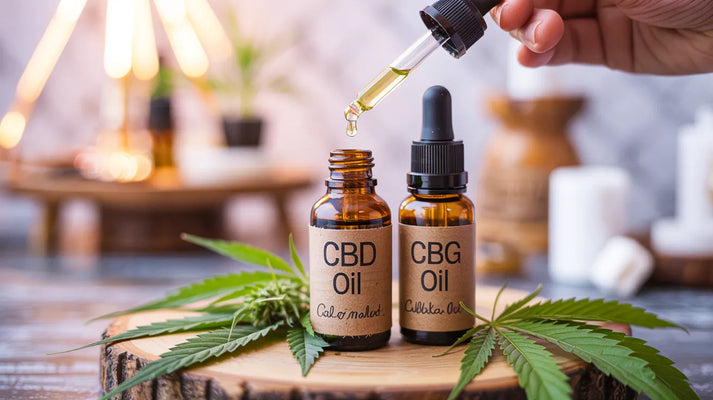

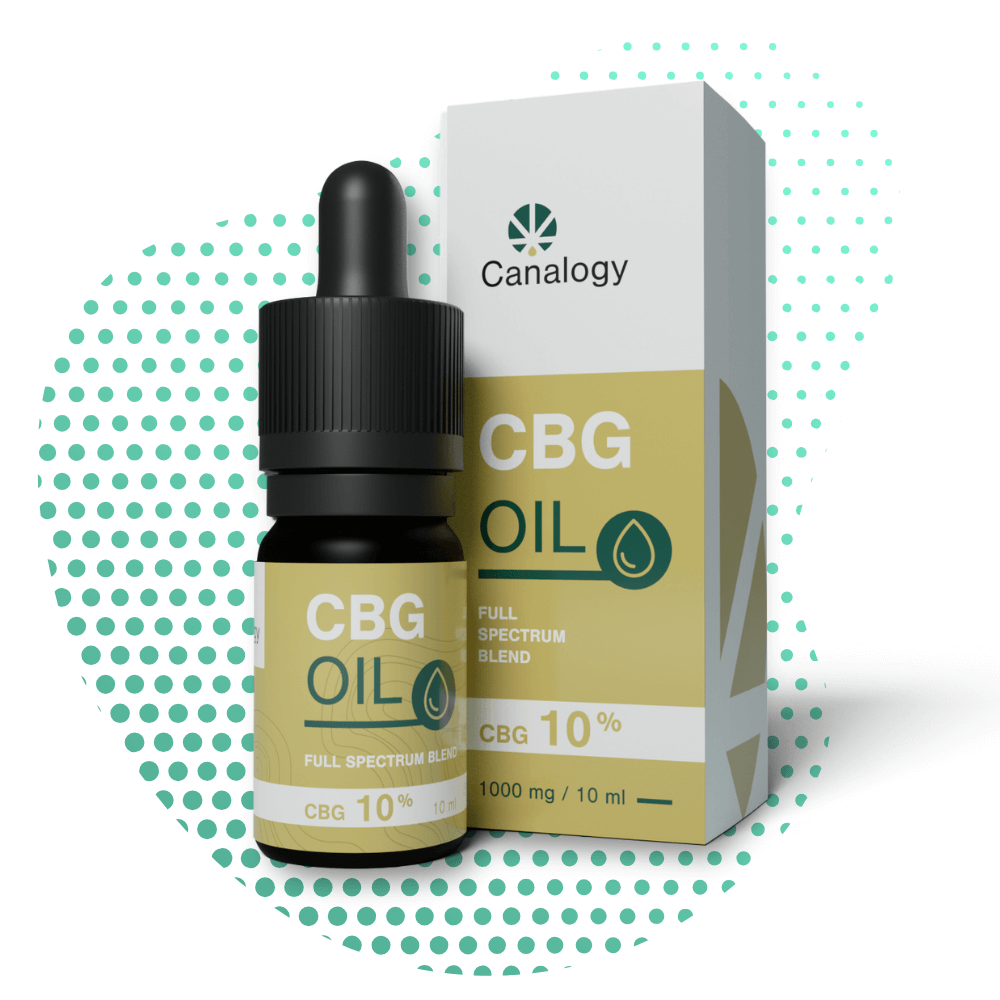
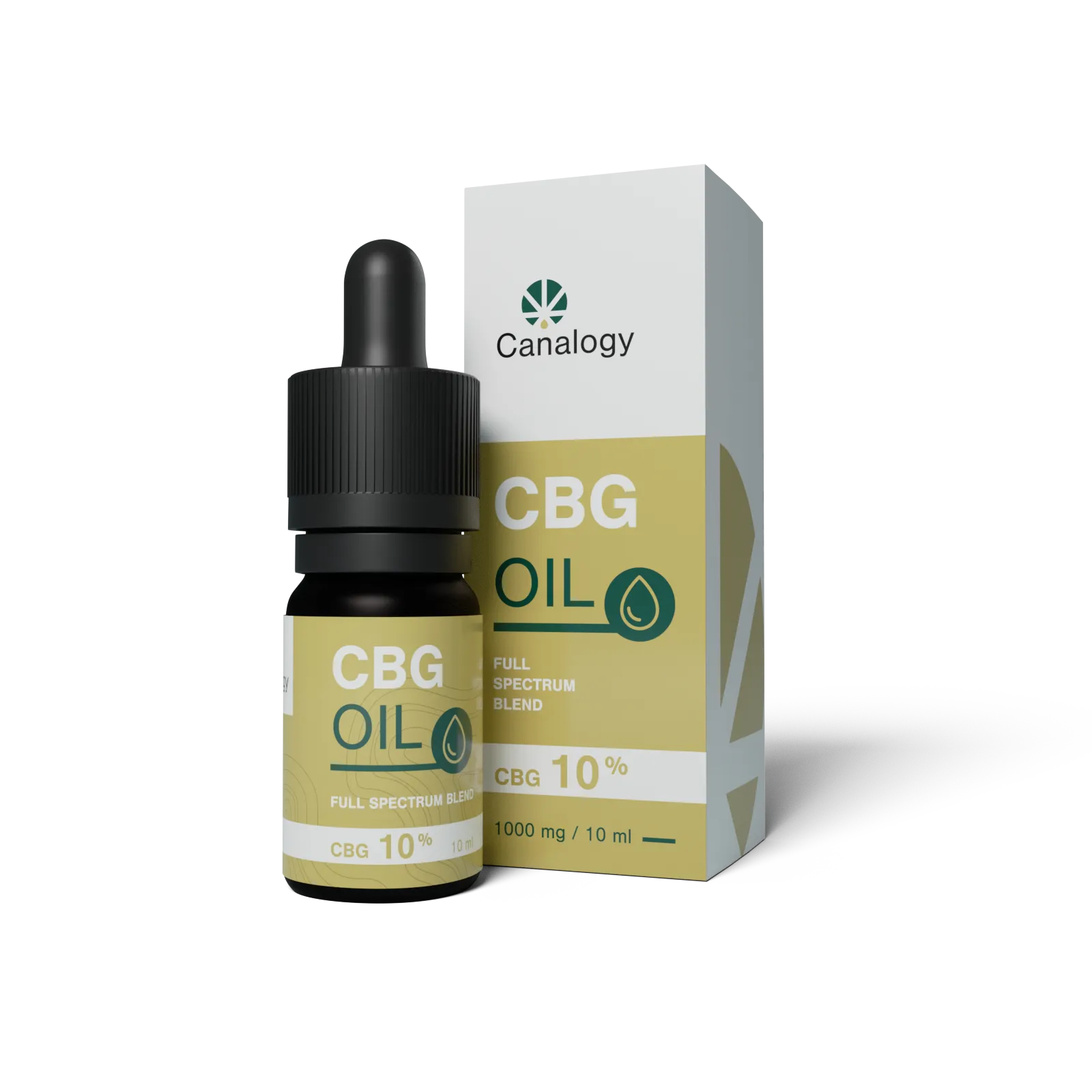
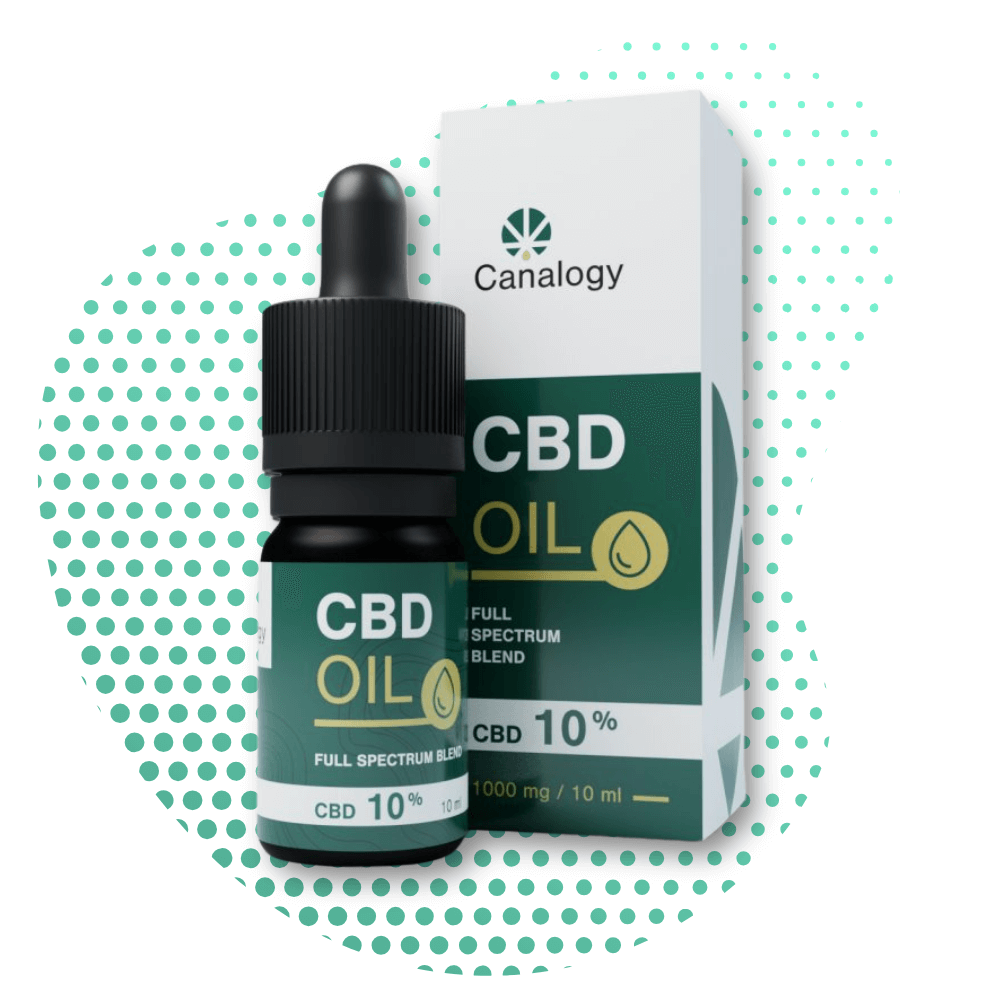
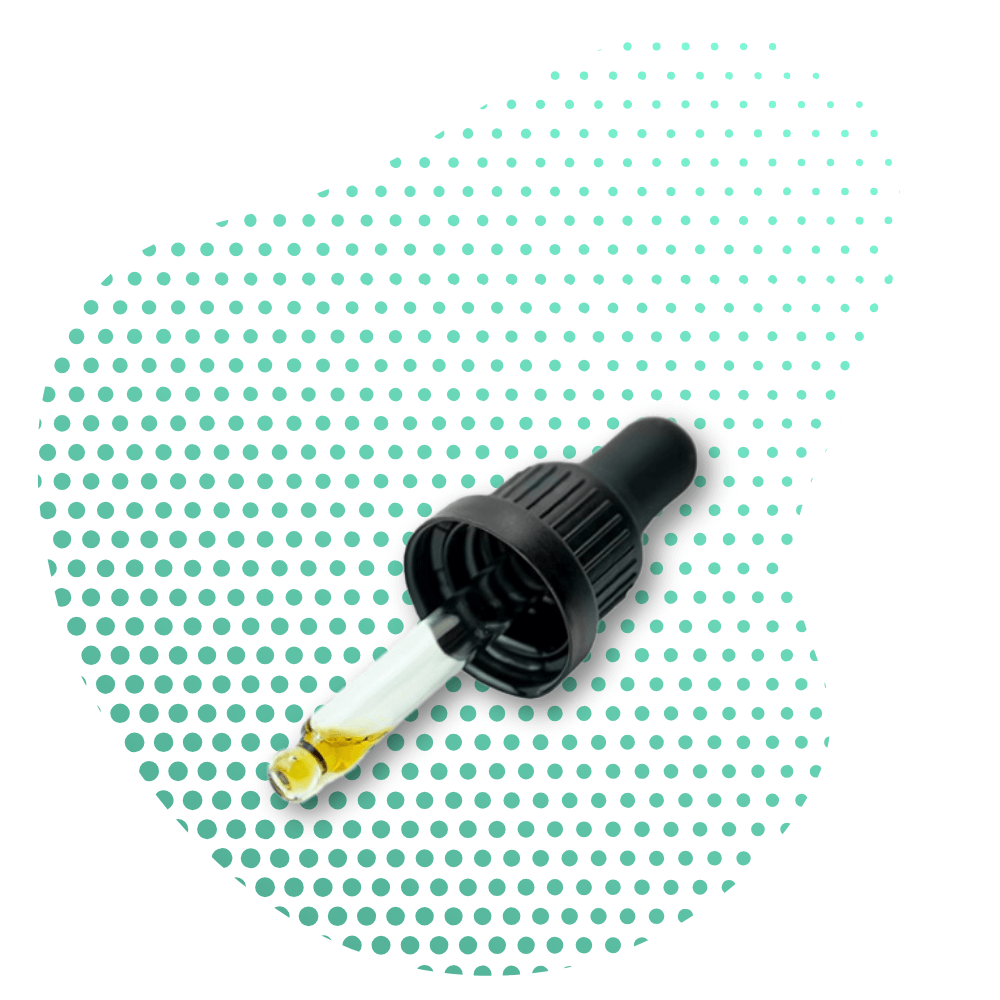
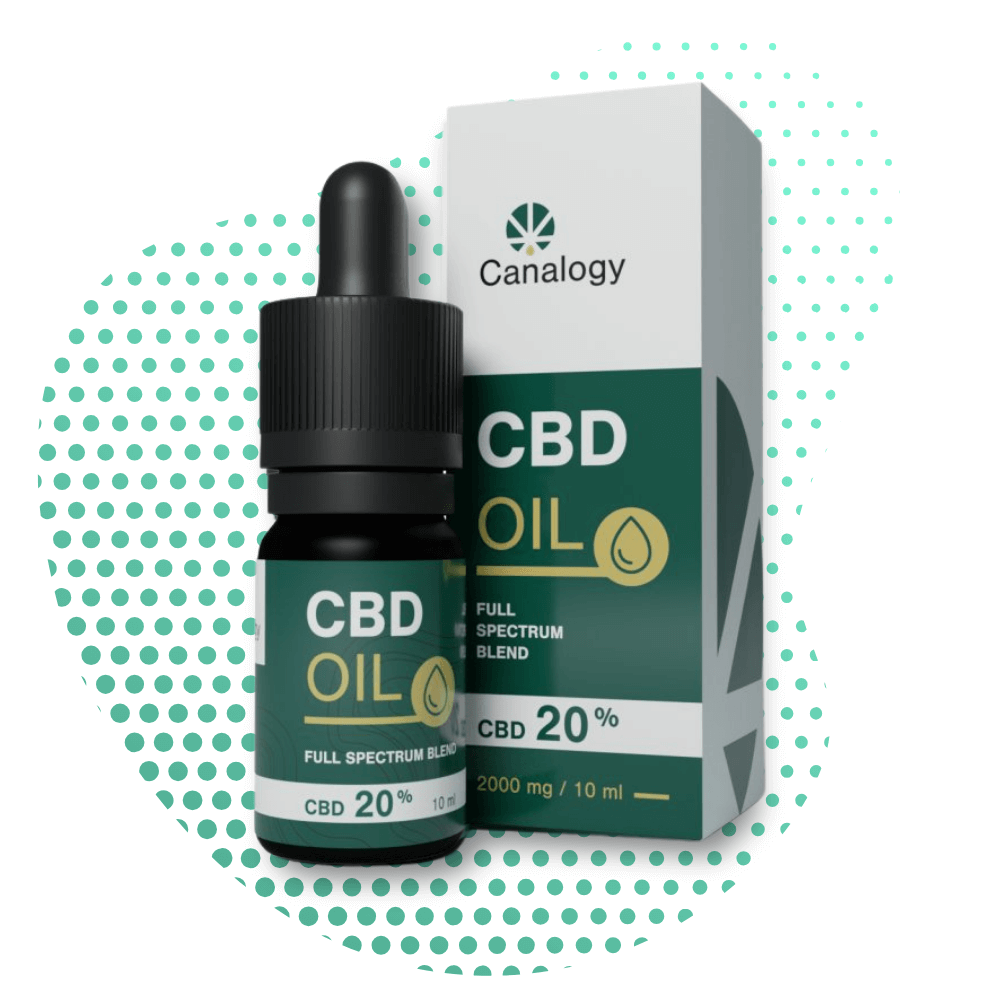
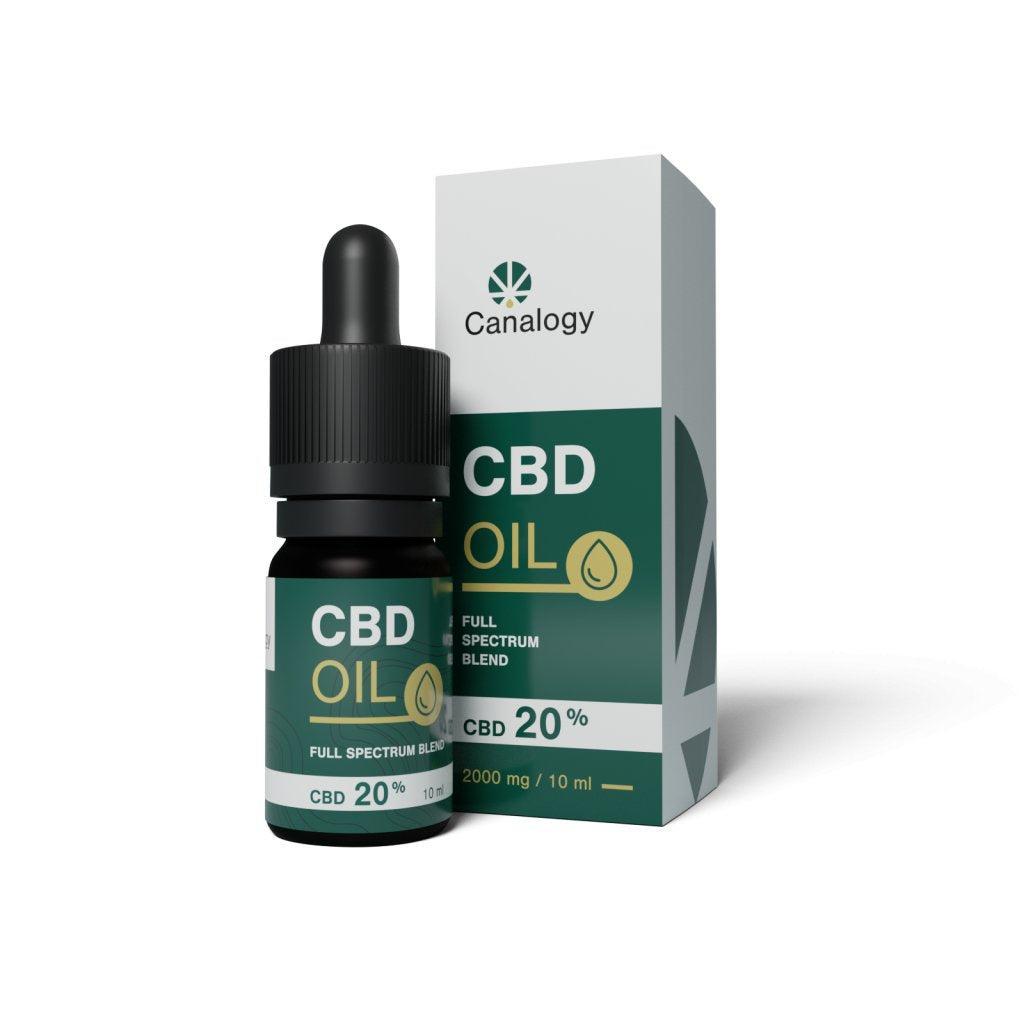
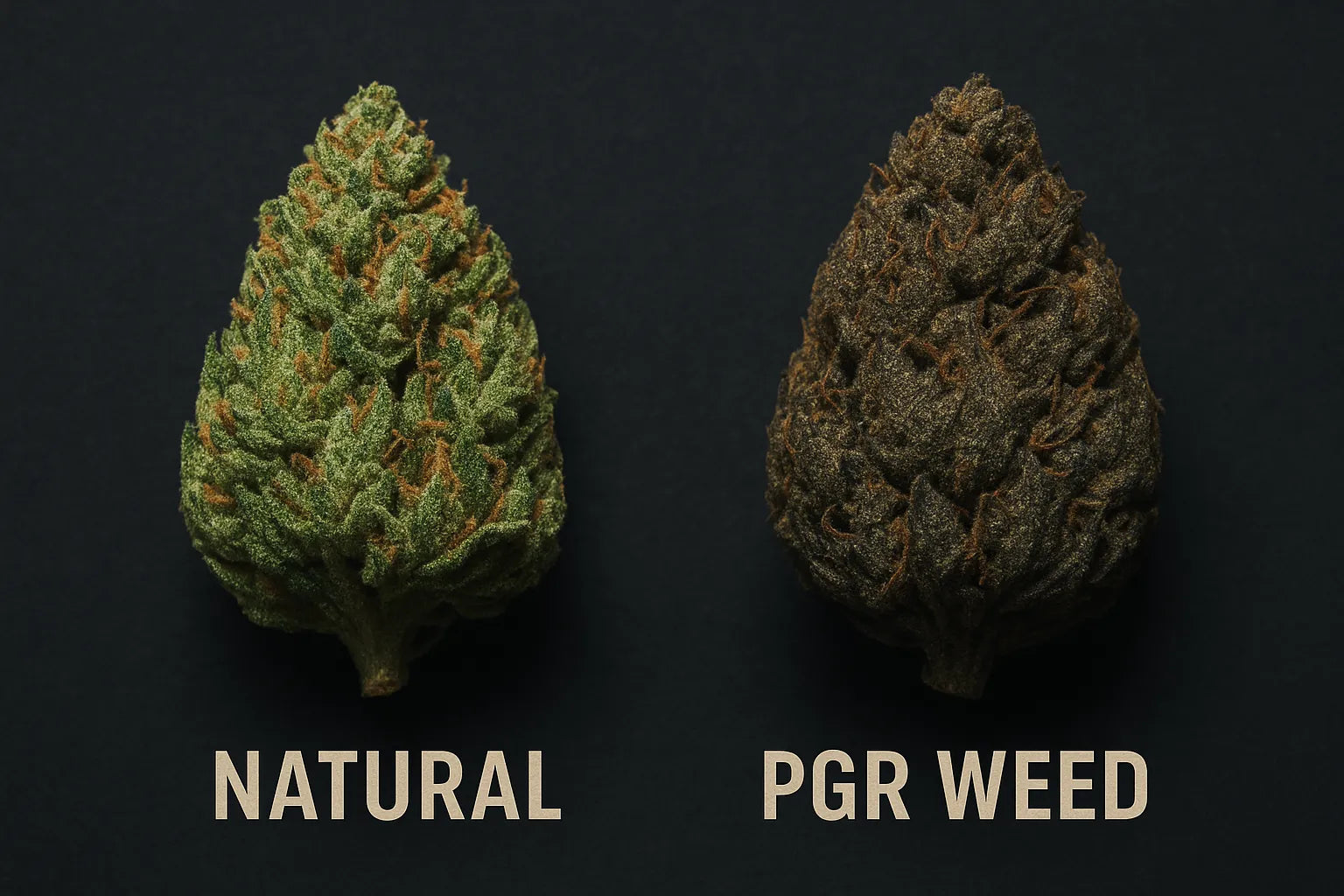
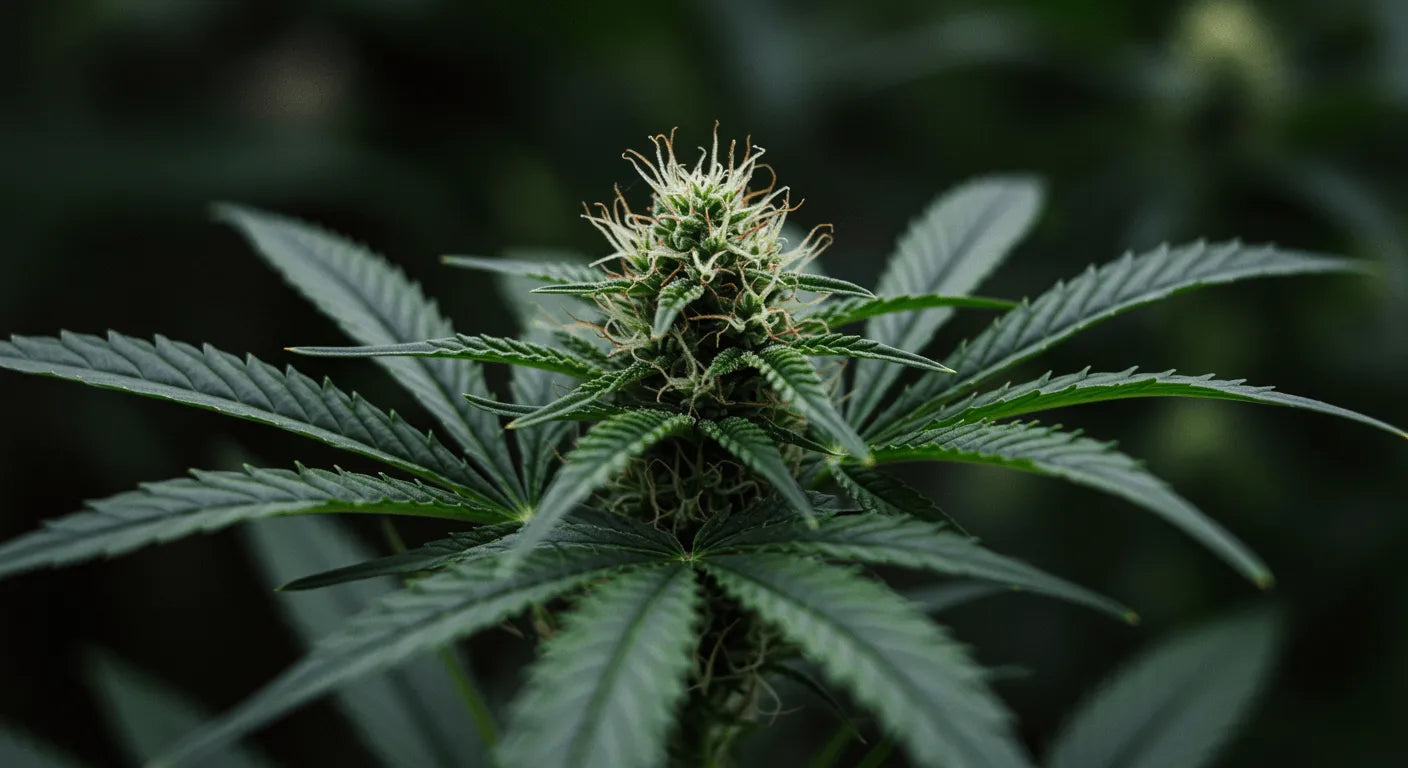
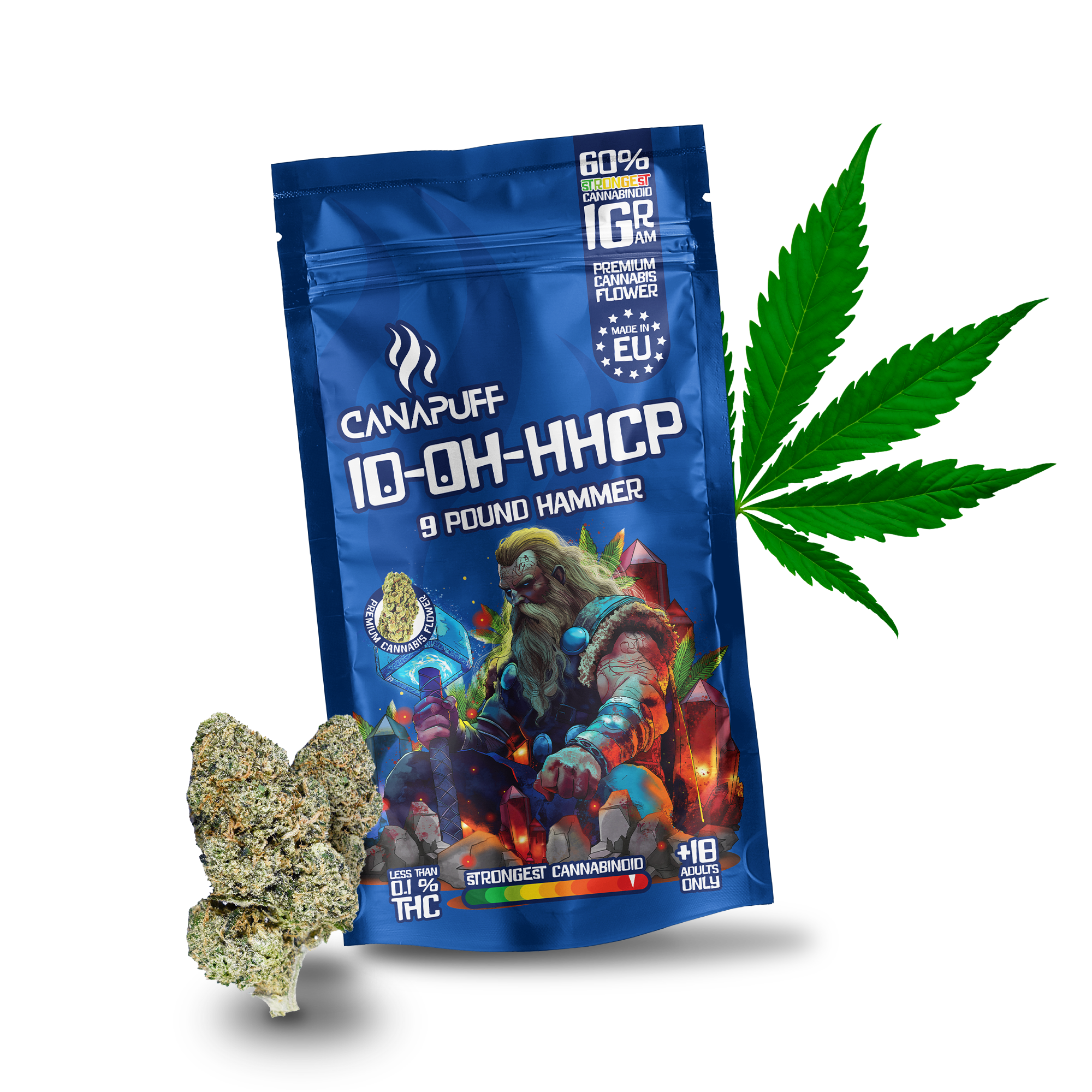
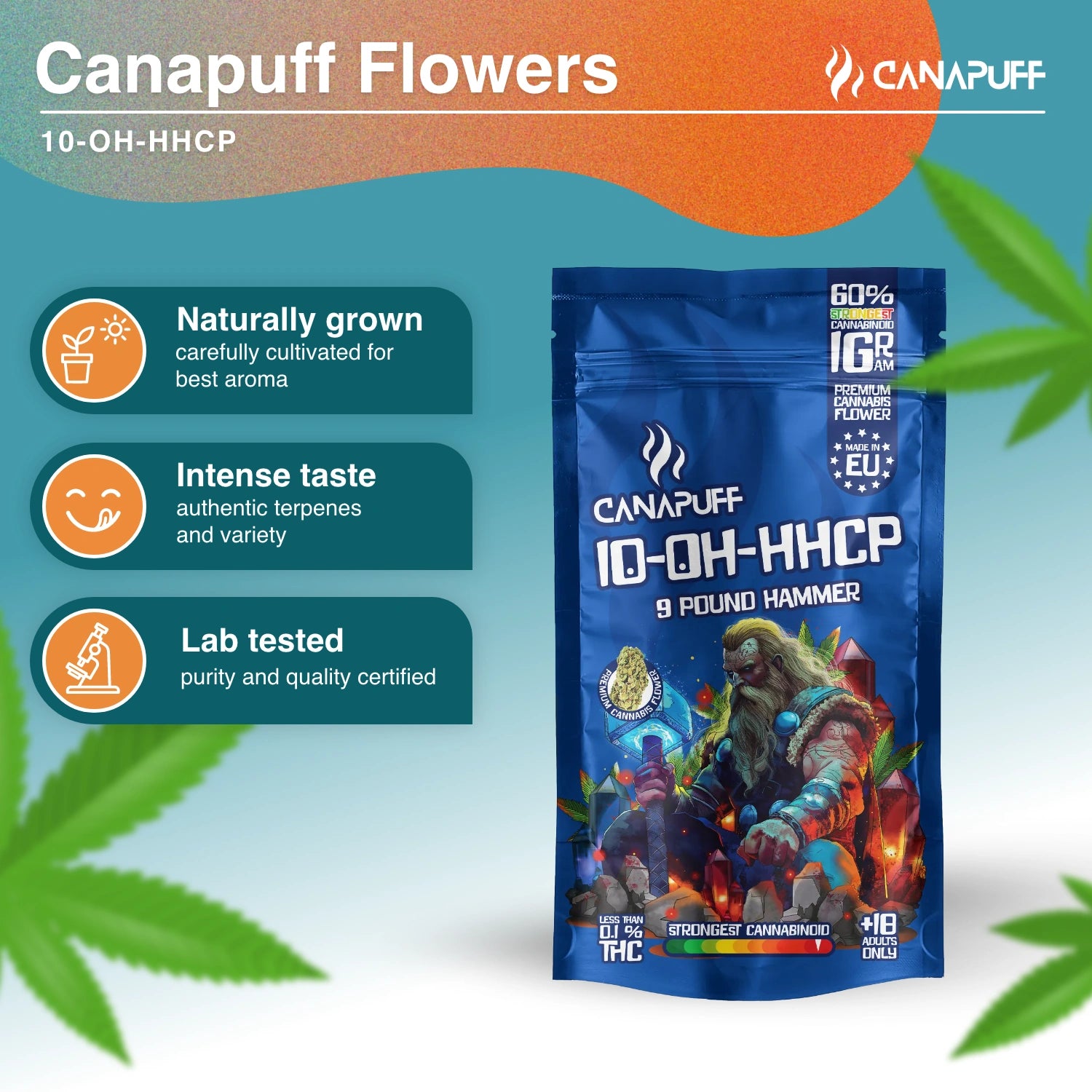
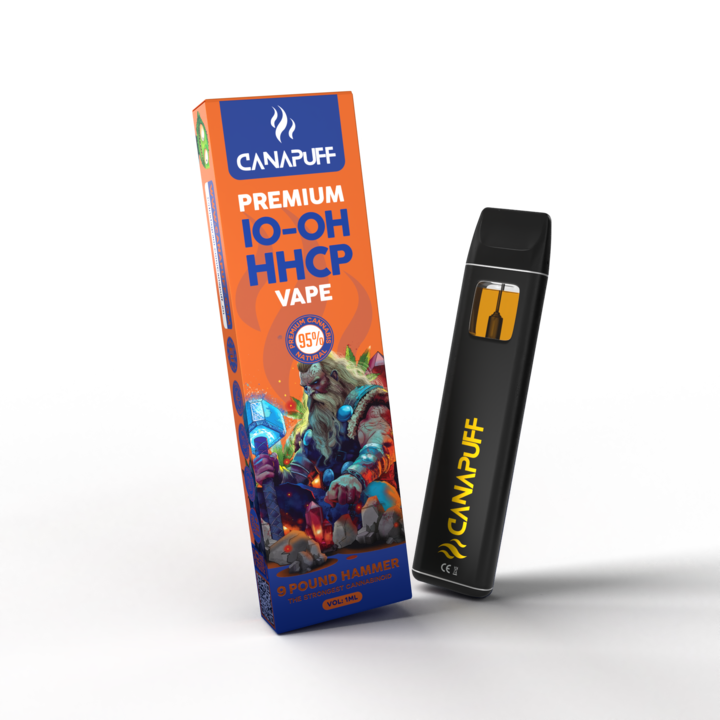
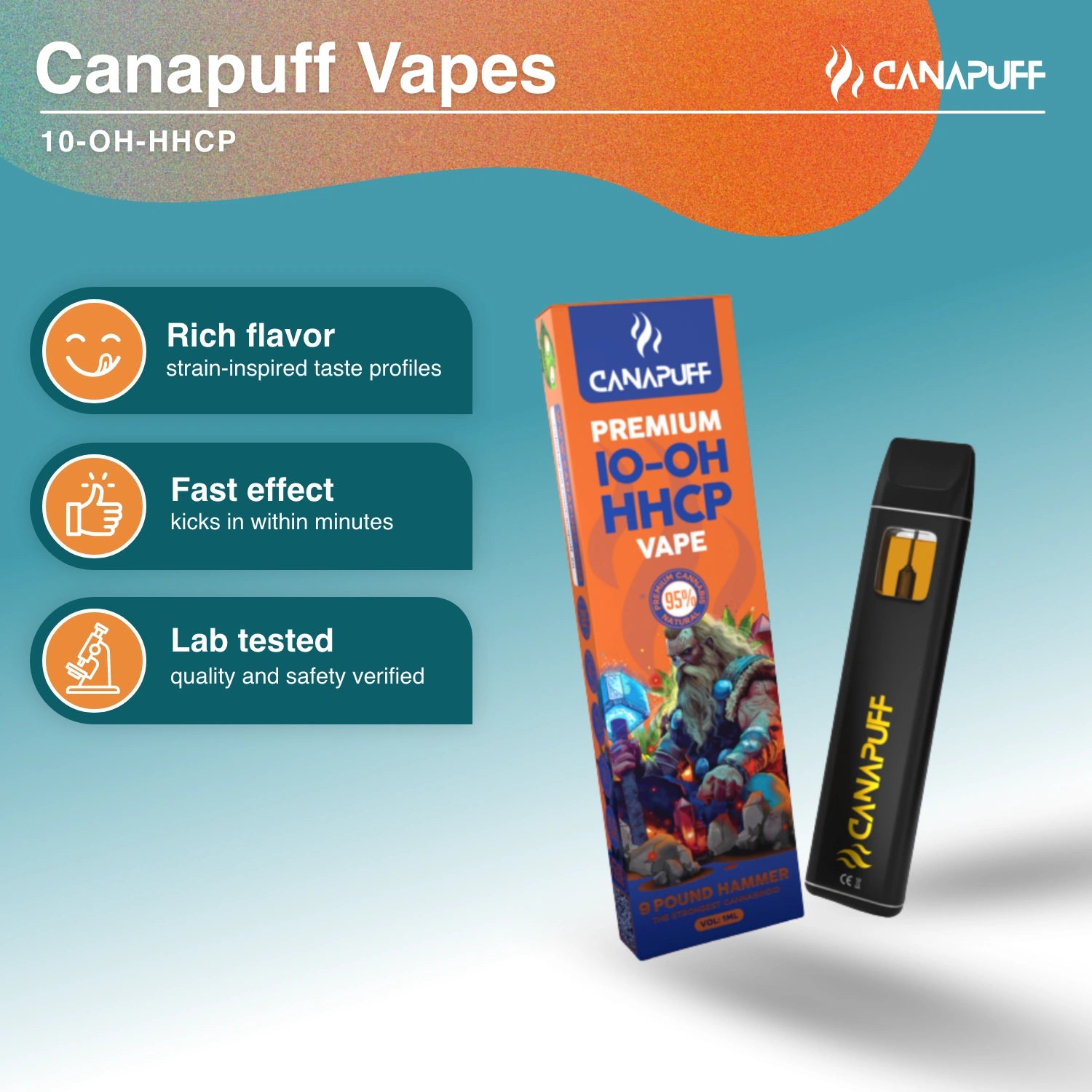
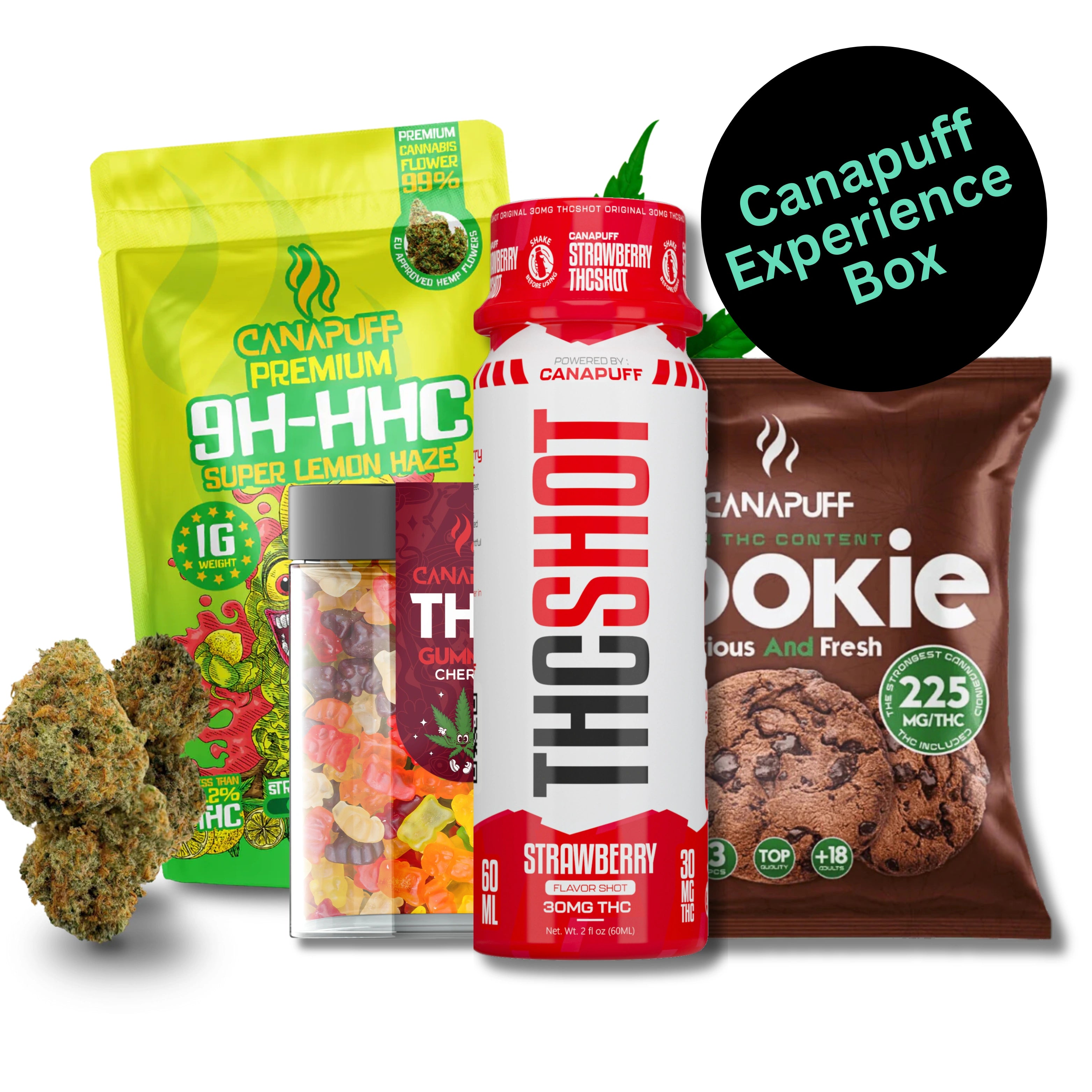

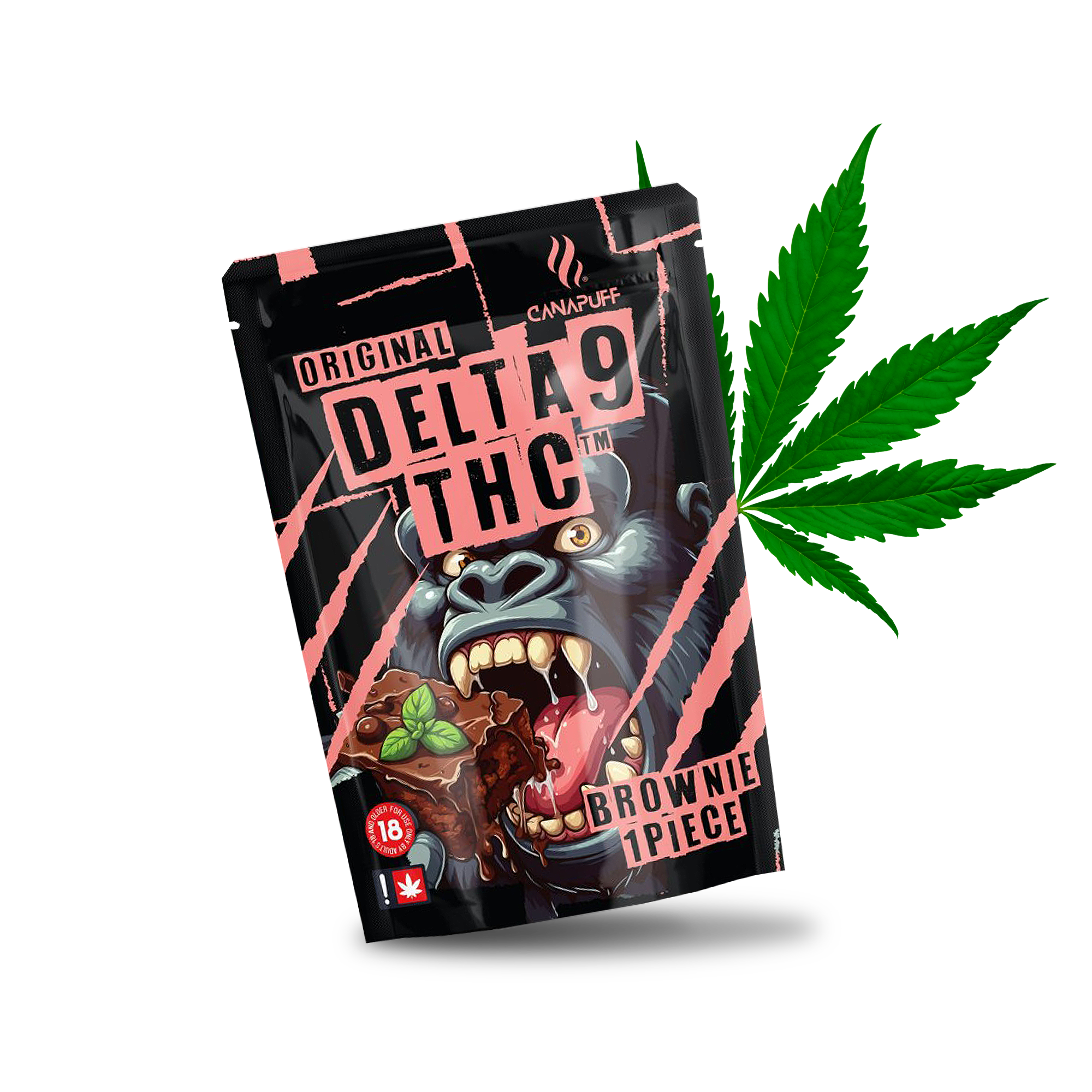
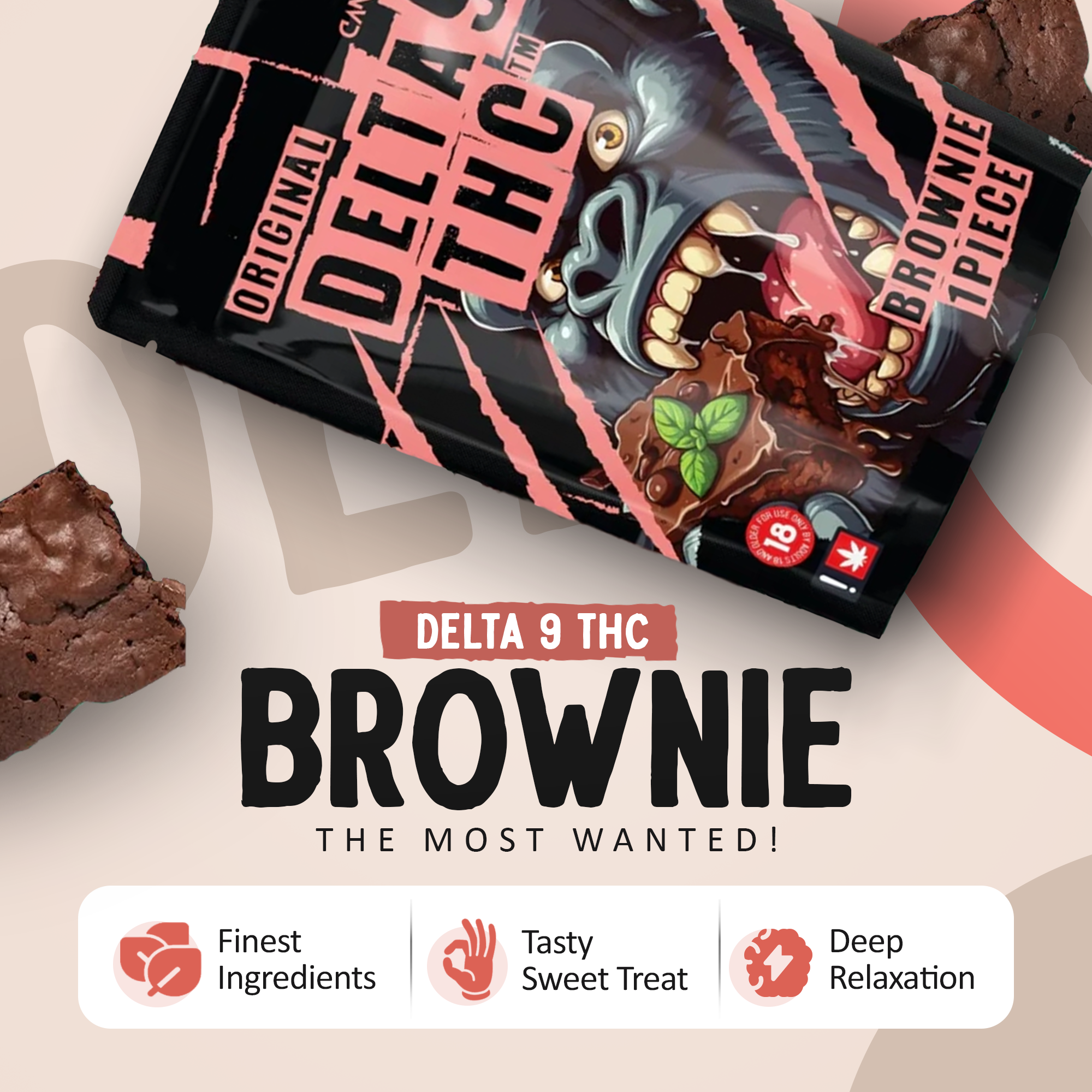
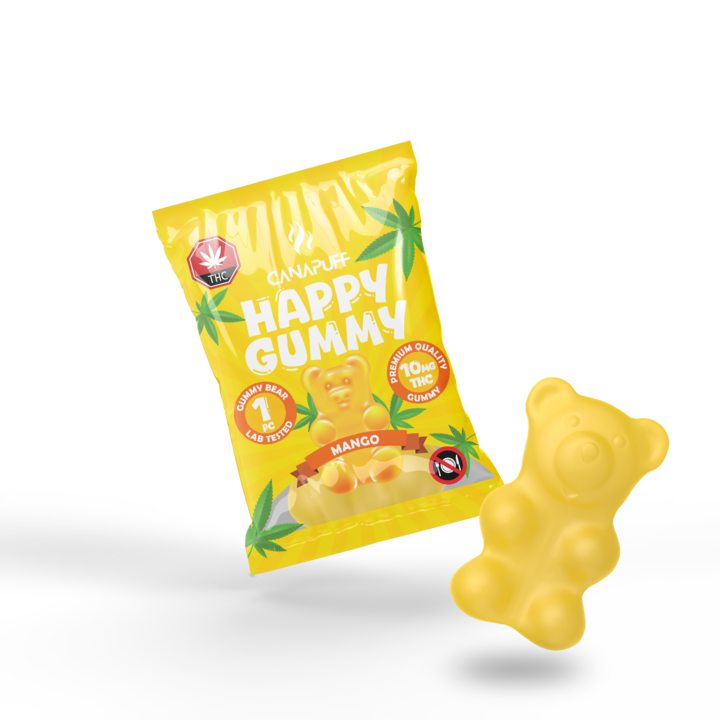
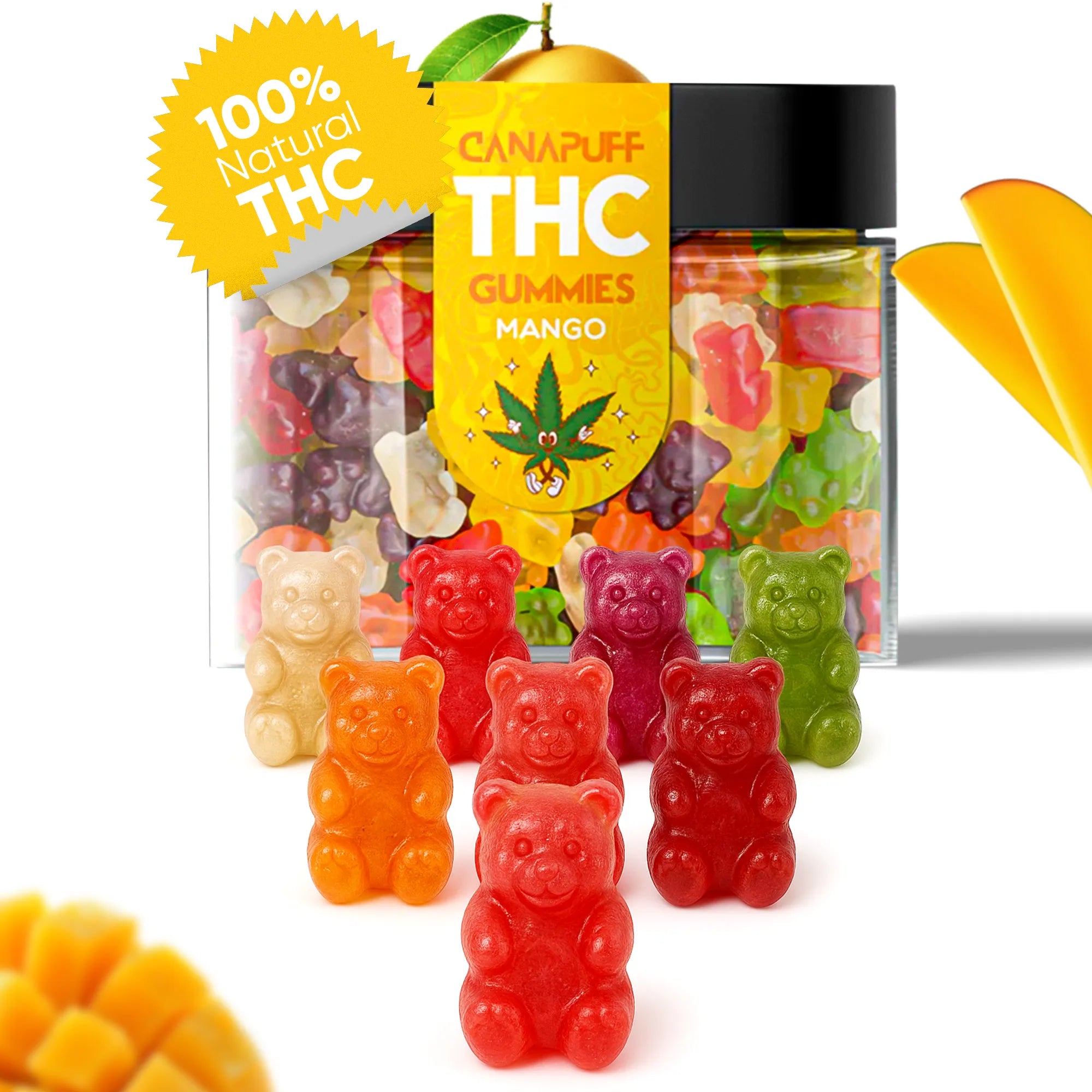
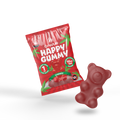
Leave a comment
This site is protected by hCaptcha and the hCaptcha Privacy Policy and Terms of Service apply.